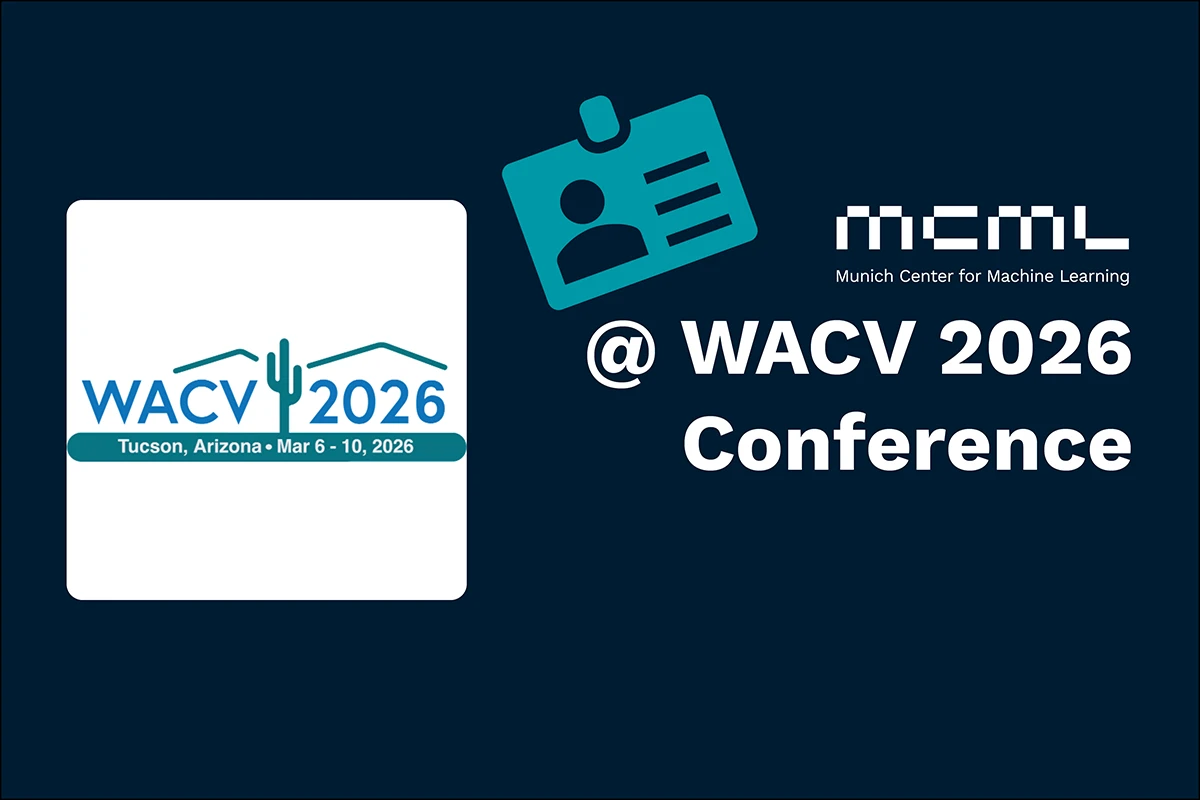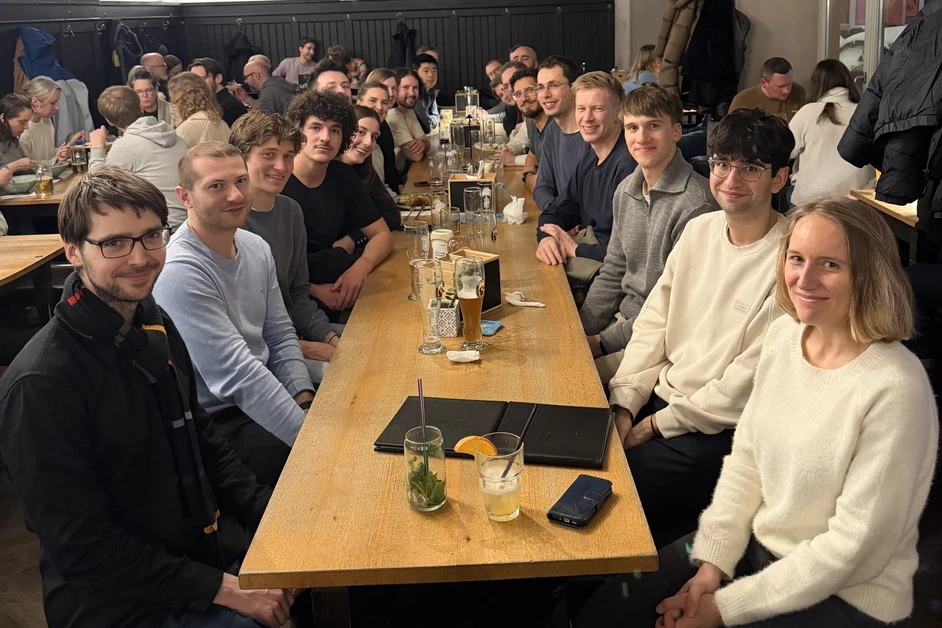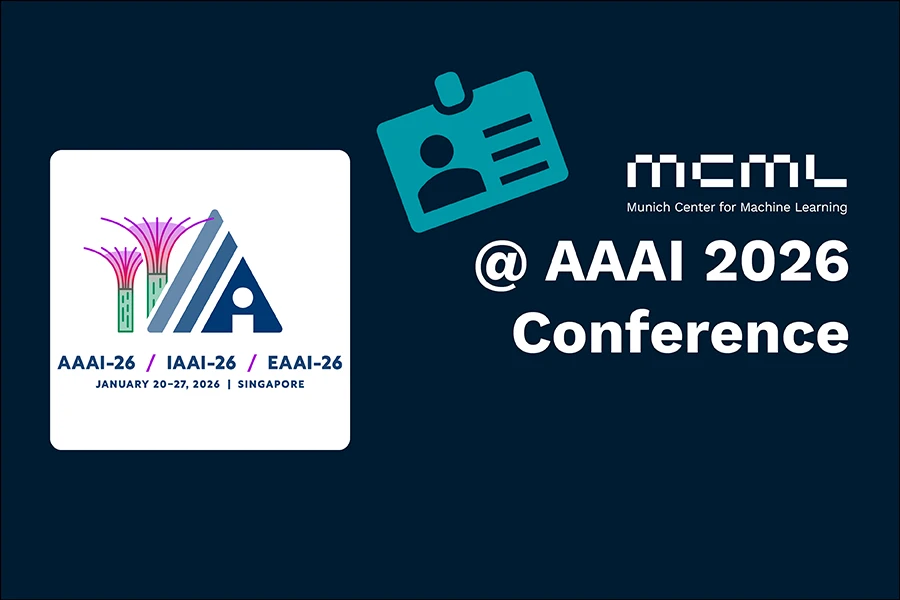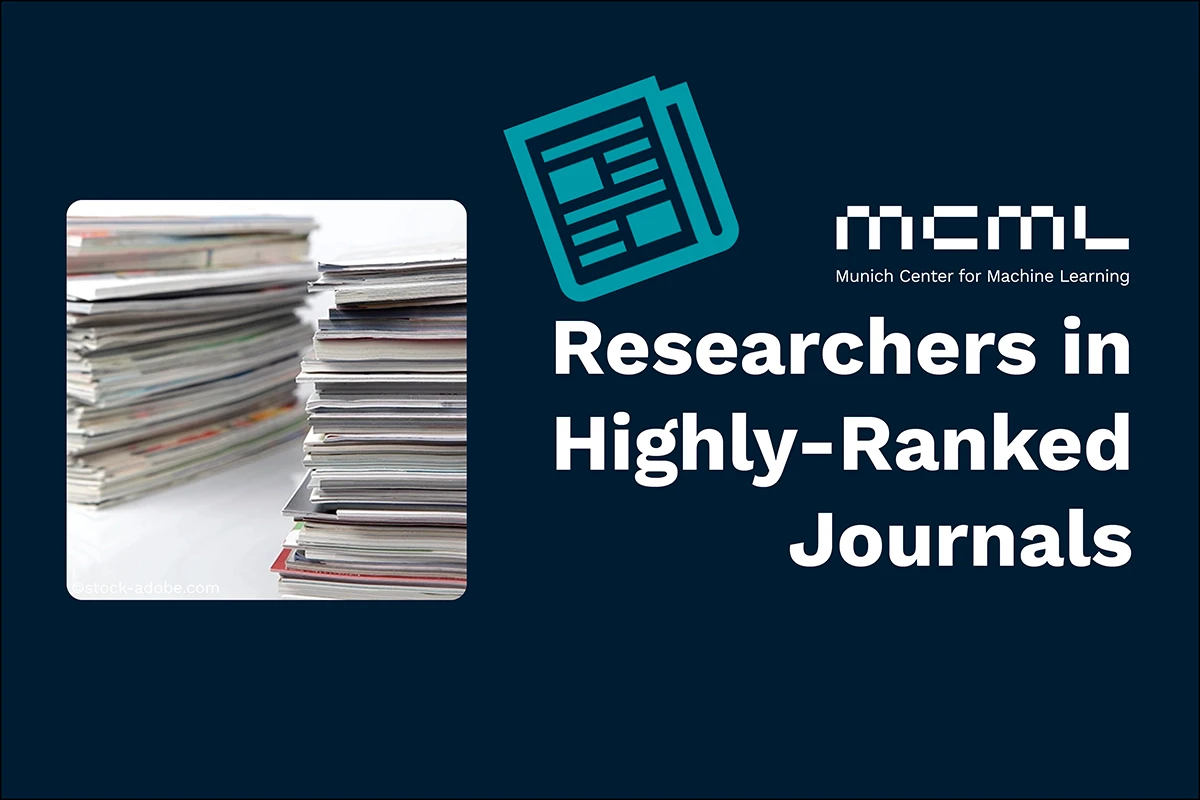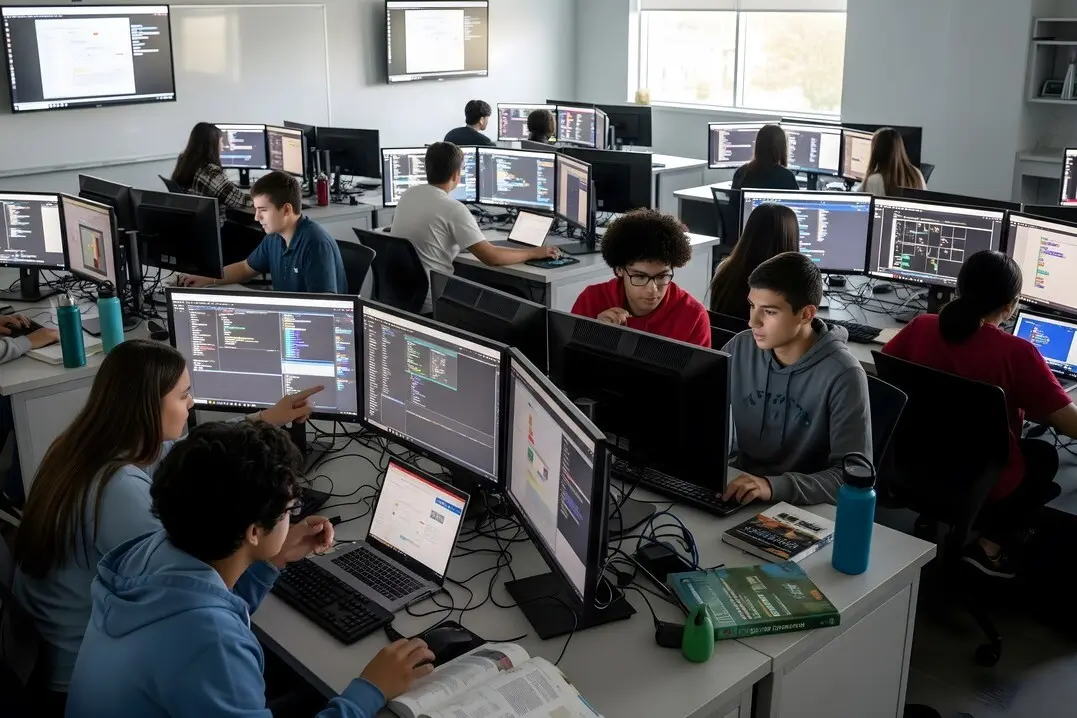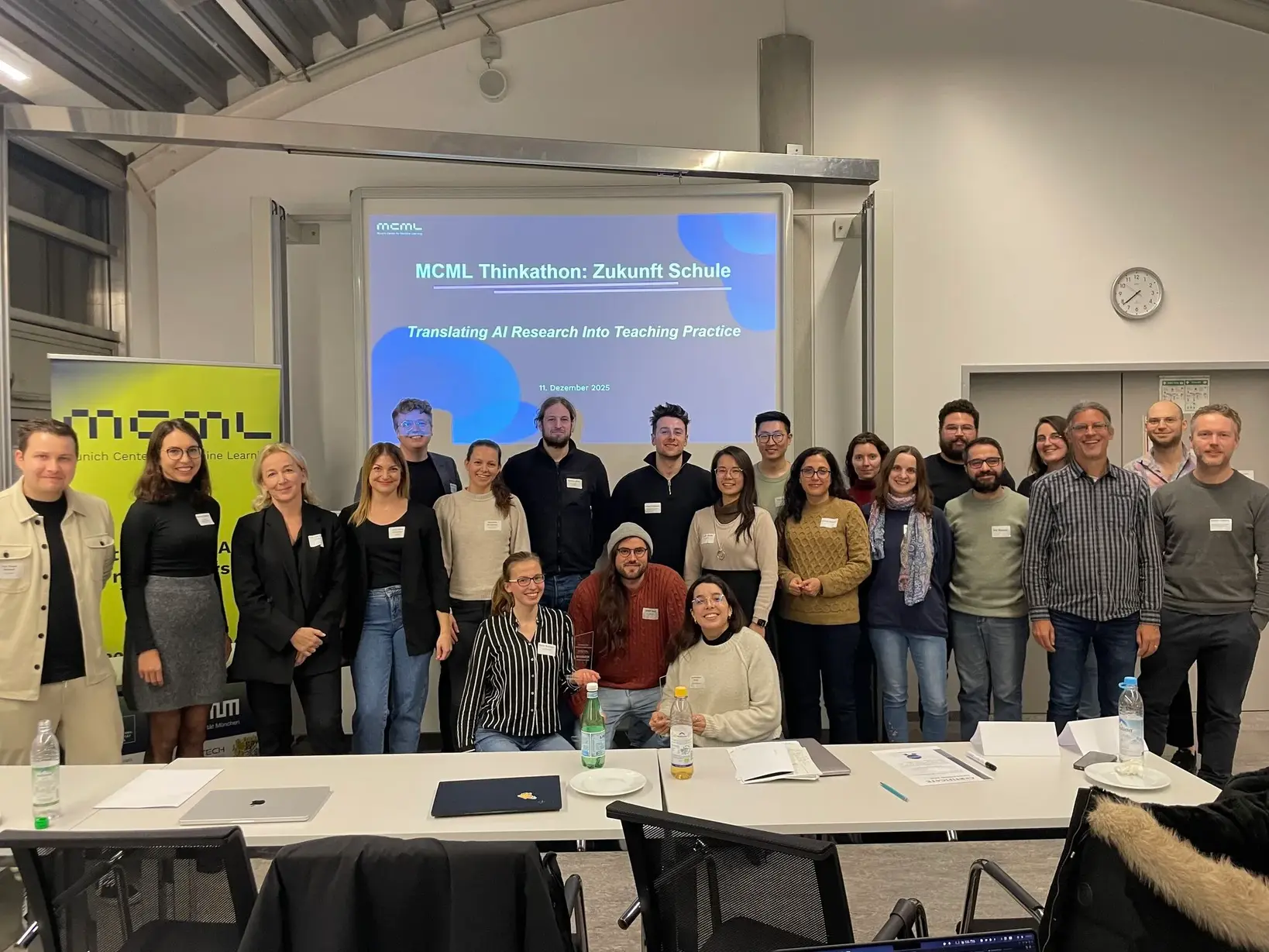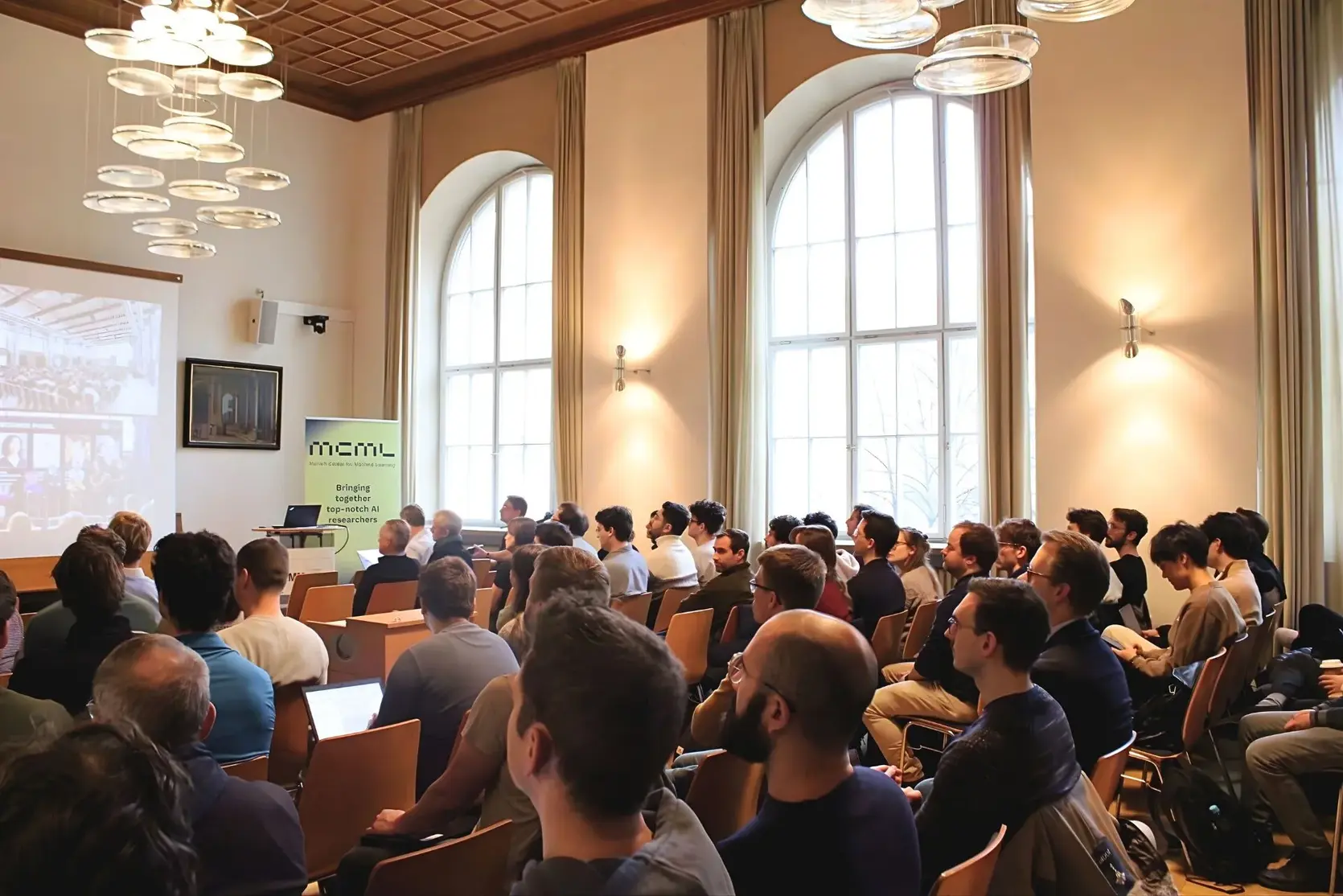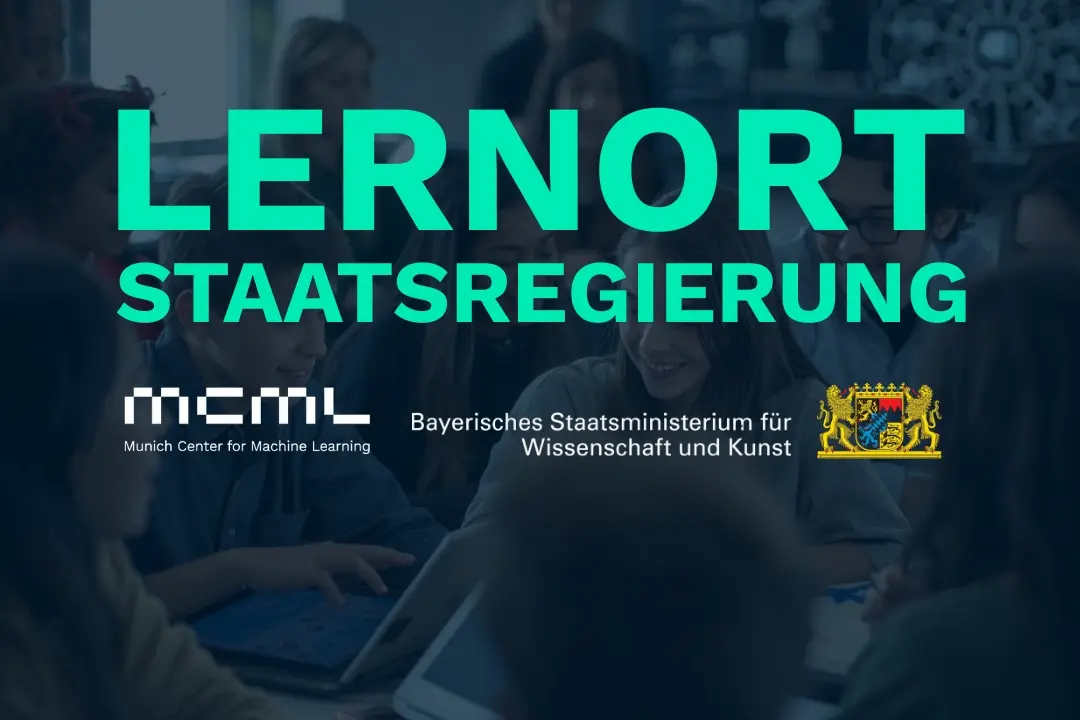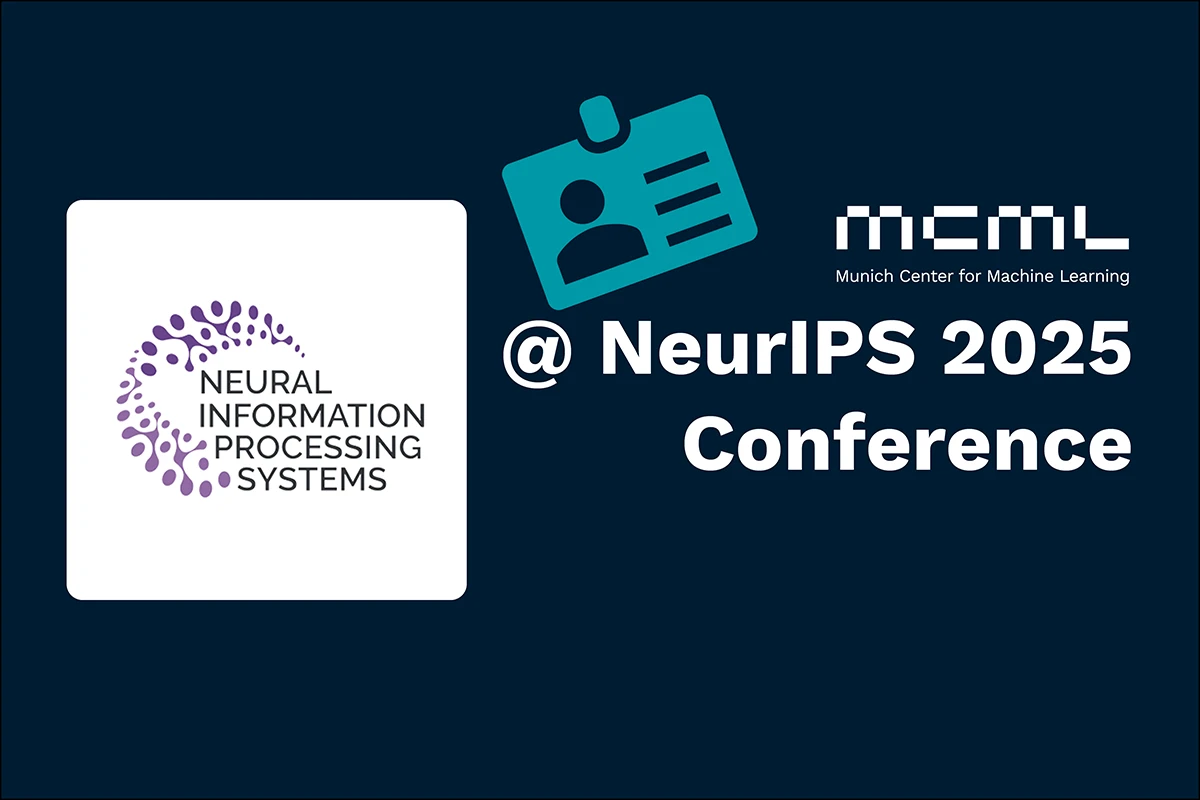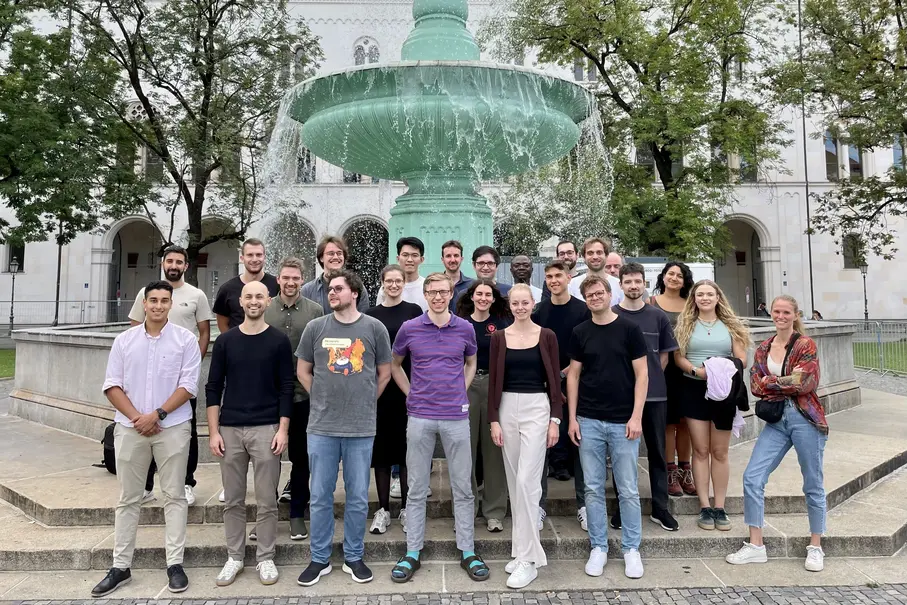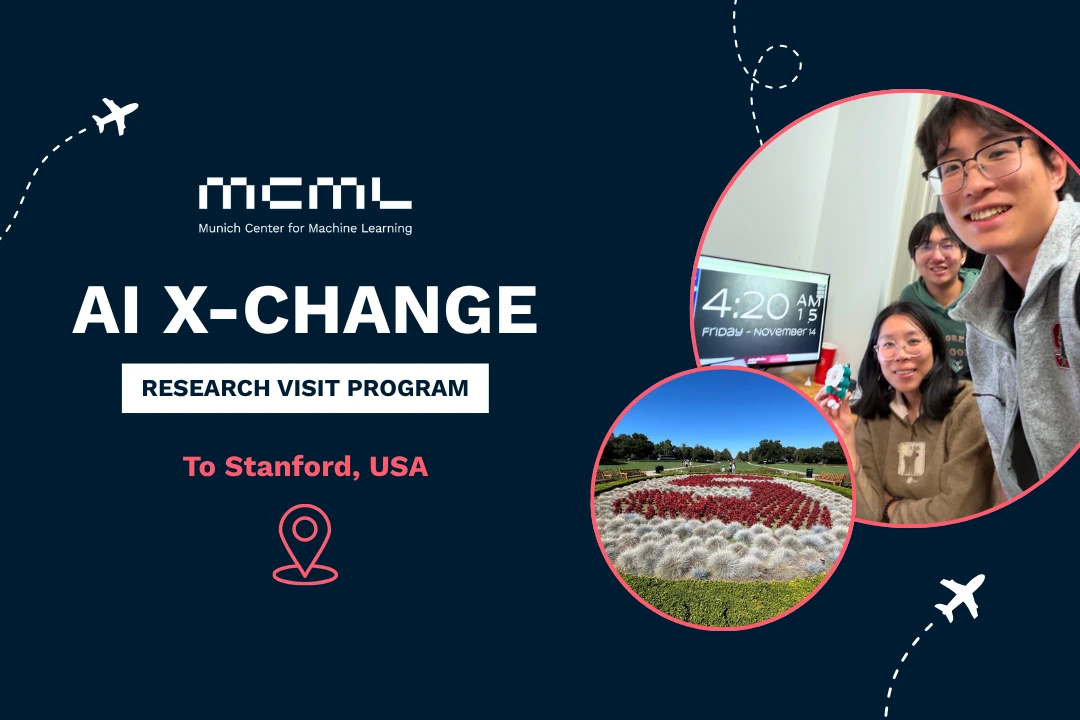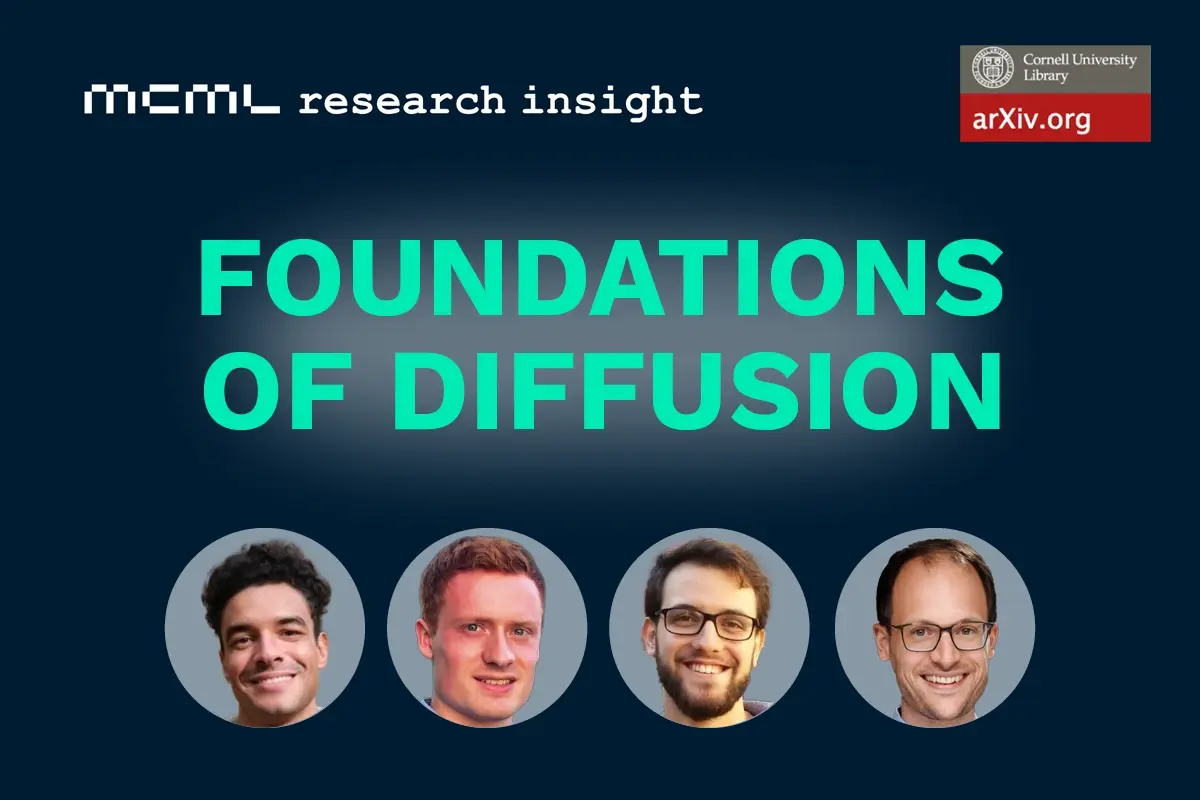
05.03.2026
Foundations of Diffusion: One Map for Images and Text
MCML Research Insight – With Vincent Pauline, Tobias Höppe, Andrea Dittadi, and Stefan Bauer
From hyper-realistic video generation to protein design, Diffusion Models are the engine behind the current wave of Generative AI. But if you try to understand how diffusion models actually work, you …
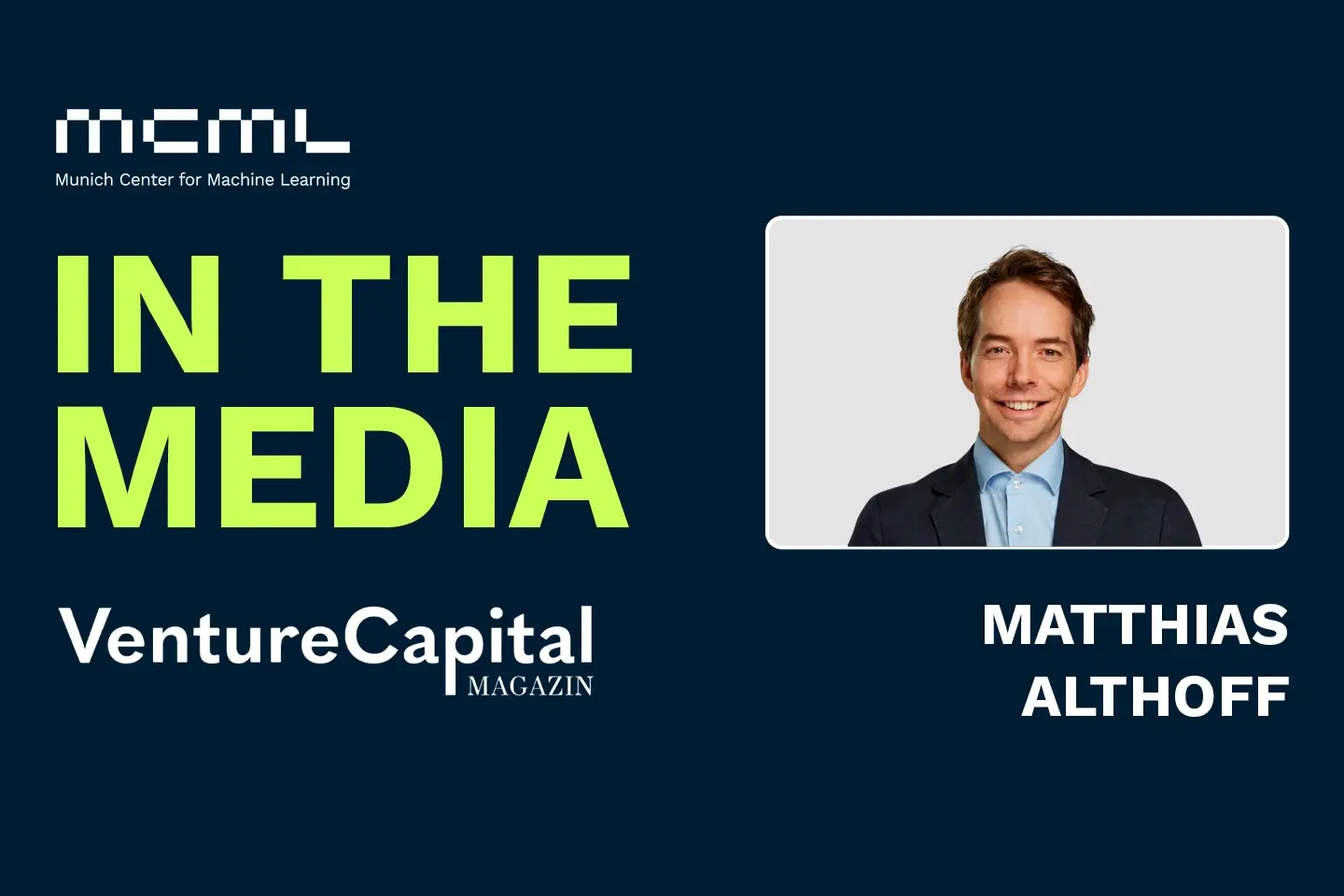
05.03.2026
Matthias Althoff Featured in VentureCapital Magazin
Autonomous Robotics for Infrastructure Repair
MCML PI Matthias Althoff was mentioned in VentureCapital Magazin in the context of the Munich robotics startup Sitegeist. Founded in 2025 as a spin-off of the Technical University of Munich, the …
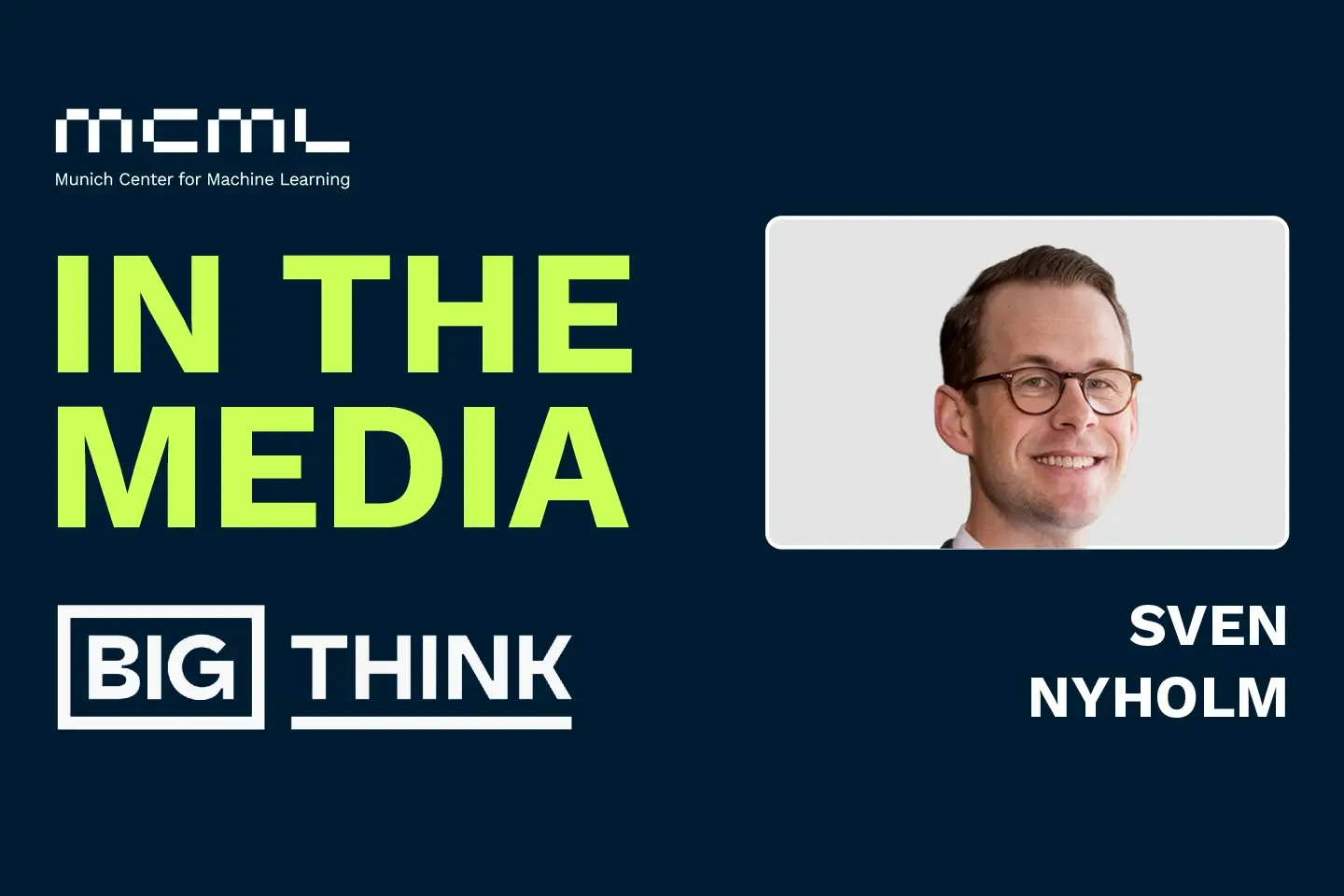
05.03.2026
Sven Nyholm Featured in Big Think
The Relationship Between AI, Effort, and Human Meaning
MCML PI Sven Nyholm was recently featured in Big Think. In the article “The hidden cost of letting AI make your life easier,” Nyholm reflects on how increasing reliance on AI might affect our sense of …

©Andreas Leder / LMU
24.02.2026
Cosmology: Measuring the Expansion of the Universe With Cosmic Fireworks
Daniel Gruen Leads LMU’s Observational Campaign on SN Winny to Help Resolve the Hubble Tension
That the Universe is expanding has been known for almost a hundred years now, but how fast? The exact rate of that expansion remains hotly debated, even challenging the standard model of cosmology. A …
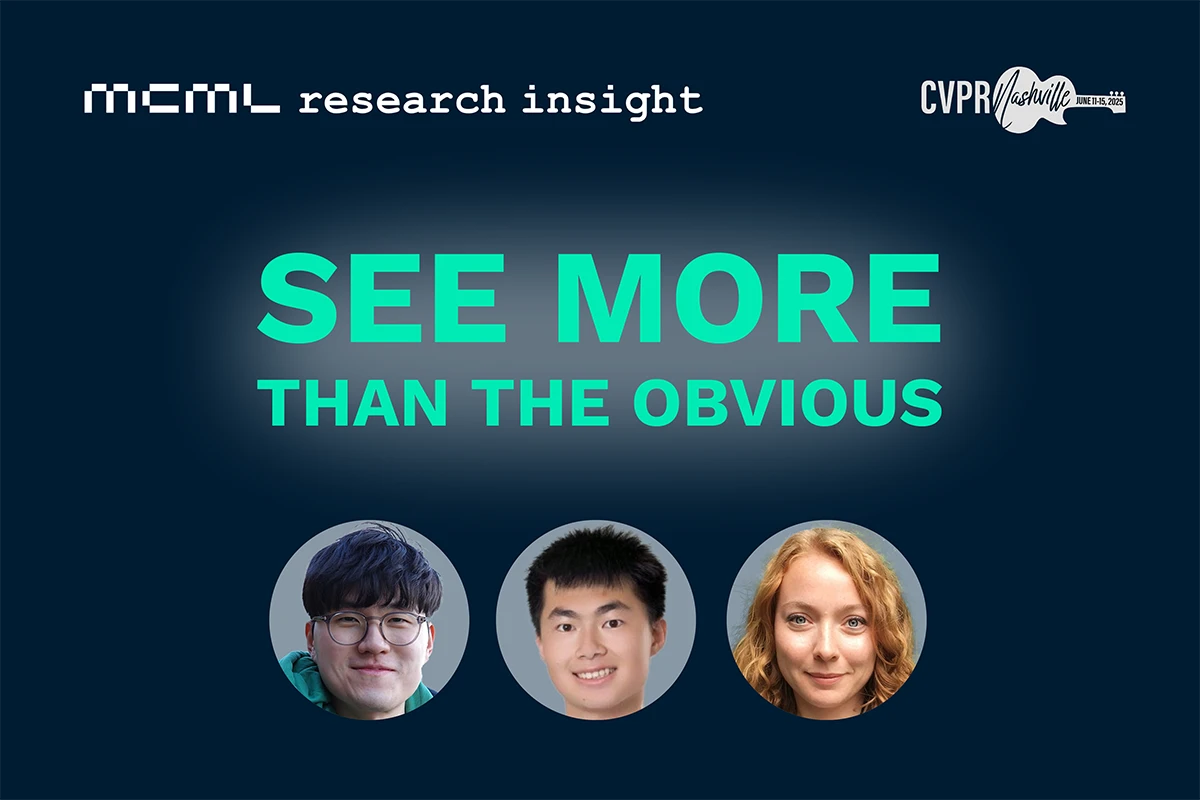
19.02.2026
COSMOS – Teaching Vision-Language Models to Look Beyond the Obvious
MCML Research Insight - With Sanghwan Kim, Rui Xiao, Mariana-Iuliana Georgescu, Stephan Alaniz, and Zeynep Akata
Today’s AI systems are remarkably good at recognizing what stands out most. Yet understanding how details relate to each other remains surprisingly difficult. Imagine asking an AI assistant to …
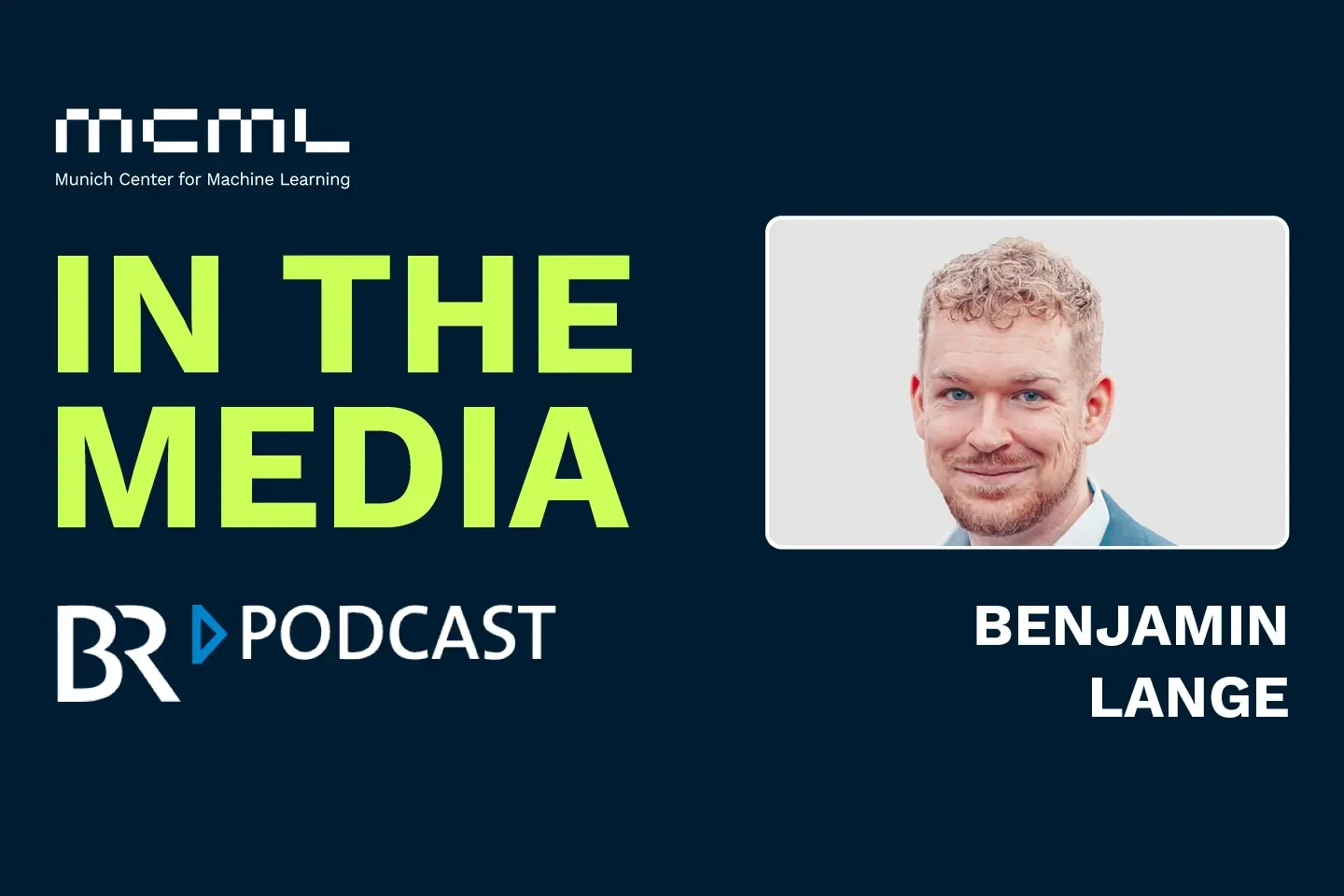
19.02.2026
Benjamin Lange Featured on Bayerischer Rundfunk Podcast
Can AI Lie? – How Manipulative Are Chatbots?
MCML Junior Research Group Leader Benjamin Lange was featured on the Bayerischer Rundfunk podcast IQ – Wissenschaft und Forschung in the episode “Kann KI lügen? – So manipulativ sind Chatbots.” In the …
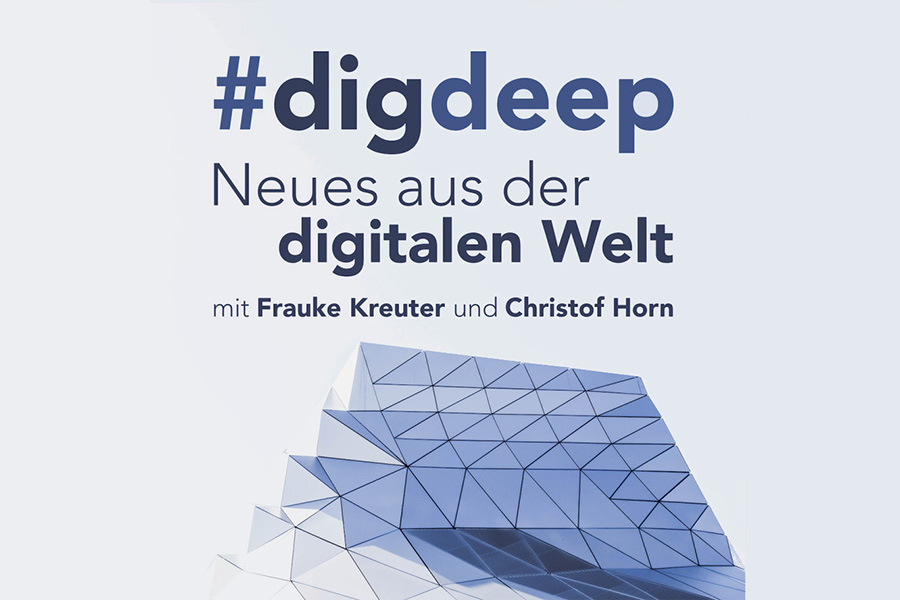
13.02.2026
Digdeep Podcast: Will School Still Work When AI Becomes the New Classmate?
News From the Digital World by MCML PI Frauke Kreuter and Christof Horn
In this episode of #digdeep Jochen Kuhn and Florian Karsten explore how school will change when children grow up with AI and chatbots that can provide knowledge at any time and even take over tasks. …

05.02.2026
Daniel Rückert and Fabian Theis Awarded Google.org AI for Science Grant
Project Will Develop a Multiscale AI Model Connecting Cellular and Organ-Level Processes
MCML Director Daniel Rueckert and MCML PI Fabian Theis have received funding through the $20 million AI for Science fund by Google.org. Their project, based at Technische Universität München and …
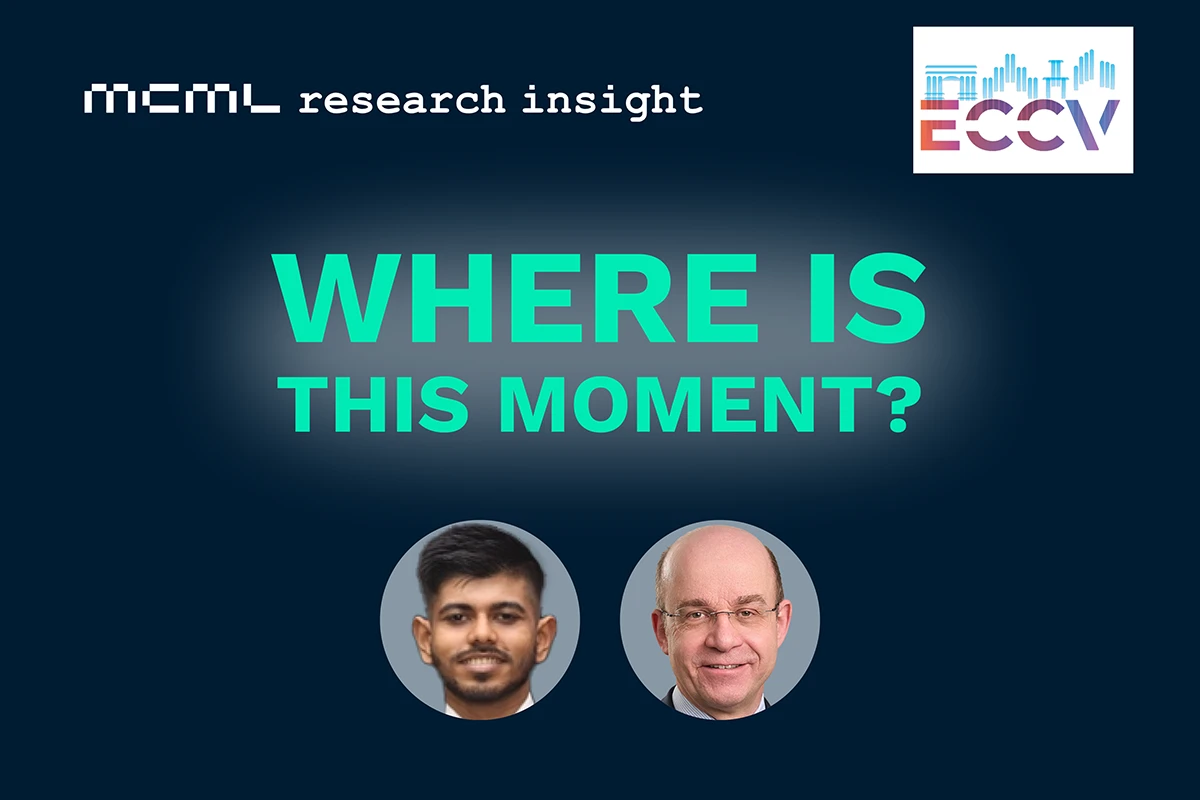
05.02.2026
Needle in a Haystack: Finding Exact Moments in Long Videos
MCML Research Insight - With With Tanveer Hannan and Thomas Seidl
Long videos are everywhere, with footage of movies, YouTube videos, body-cam recordings, and AR/VR often running for tens of minutes or even hours. Now imagine asking a simple question like “Where are …

04.02.2026
Benjamin Busam Leads Design of Bavarian Earth Observation Satellite Network “CuBy”
Bavarian Earth Observation Satellite Network Ready for Launch
MCML PI Benjamin Busam is leading the scientific design of the Bavarian Earth observation satellite network “CuBy”, which is scheduled for launch in June 2026. The system consists of five small …
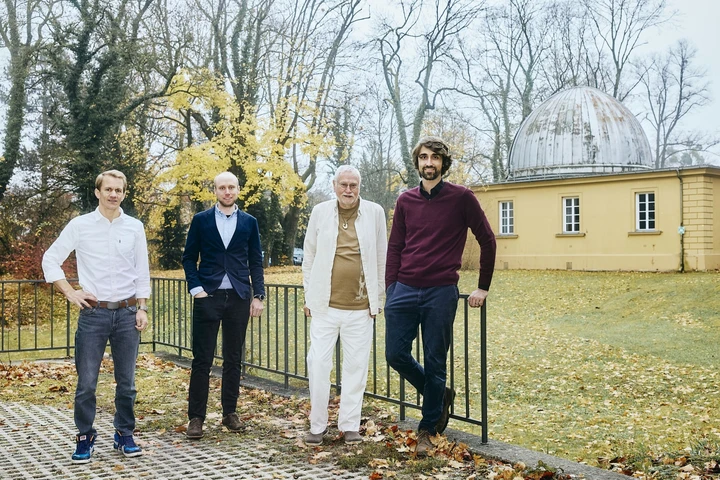
©Florian Generotzky / LMU
30.01.2026
Cracks in the Foundations of Cosmology
Daniel Grün Explains How Observations Test Our Understanding of the Universe
There was a time when the Andromeda Nebula was the end of the Universe. At least, a number of astronomers in the early 20th century still thought that fuzzy objects in the night sky – such as the …

29.01.2026
Digdeep Podcast: Anna Kopp, How Does Microsoft Bring People and AI Together?
News From the Digital World by MCML PI Frauke Kreuter and Christof Horn
In this episode of #digdeep the team speaks with Anna Kopp, Director of Microsoft Digital Germany, about the meaningful integration of AI, agents, and human work. She describes how work at Microsoft …
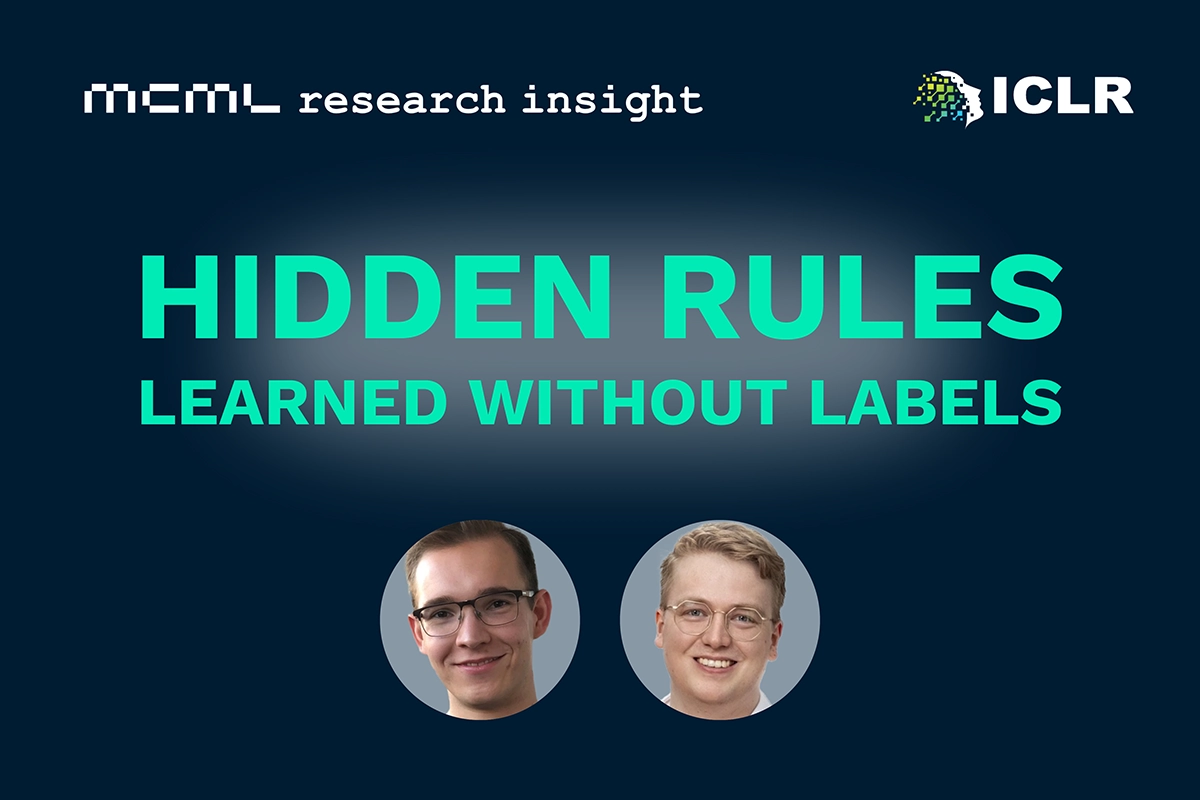
29.01.2026
How Machines Can Discover Hidden Rules Without Supervision
MCML Research Insight - With Tobias Schmidt, and Steffen Schneider
How can machines learn the hidden rules that govern how systems change—how objects move, how weather patterns unfold, or how biological signals evolve—without ever being told what those rules are?
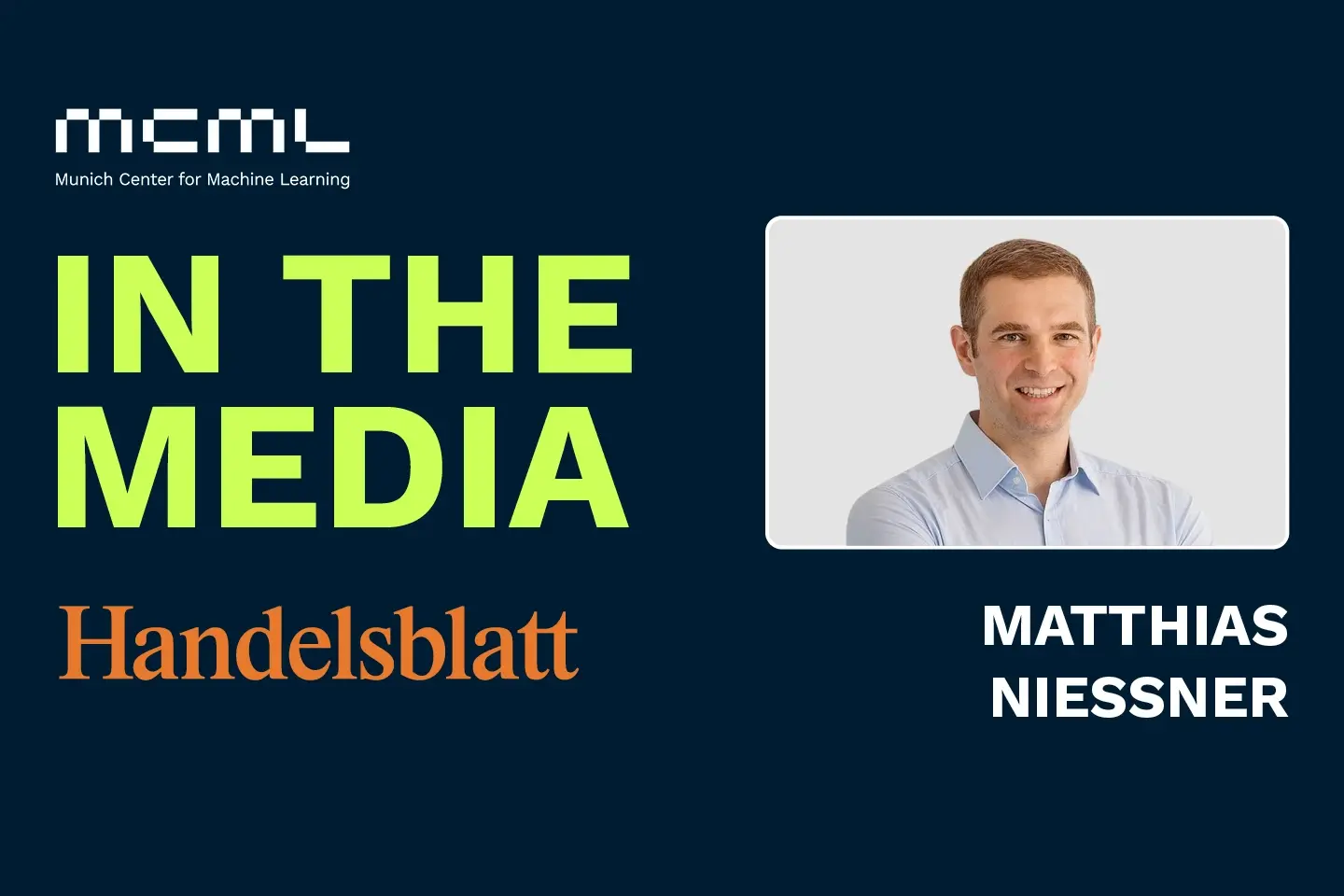
28.01.2026
Matthias Nießner Co-Founds AI Startup Synthesia
Interactive AI Avatars Reshape Corporate Training
The London-based AI company Synthesia, co-founded by MCML PI Matthias Nießner, has raised an additional $200 million, bringing its valuation to $4 billion. Synthesia is one of Europe’s most valuable …
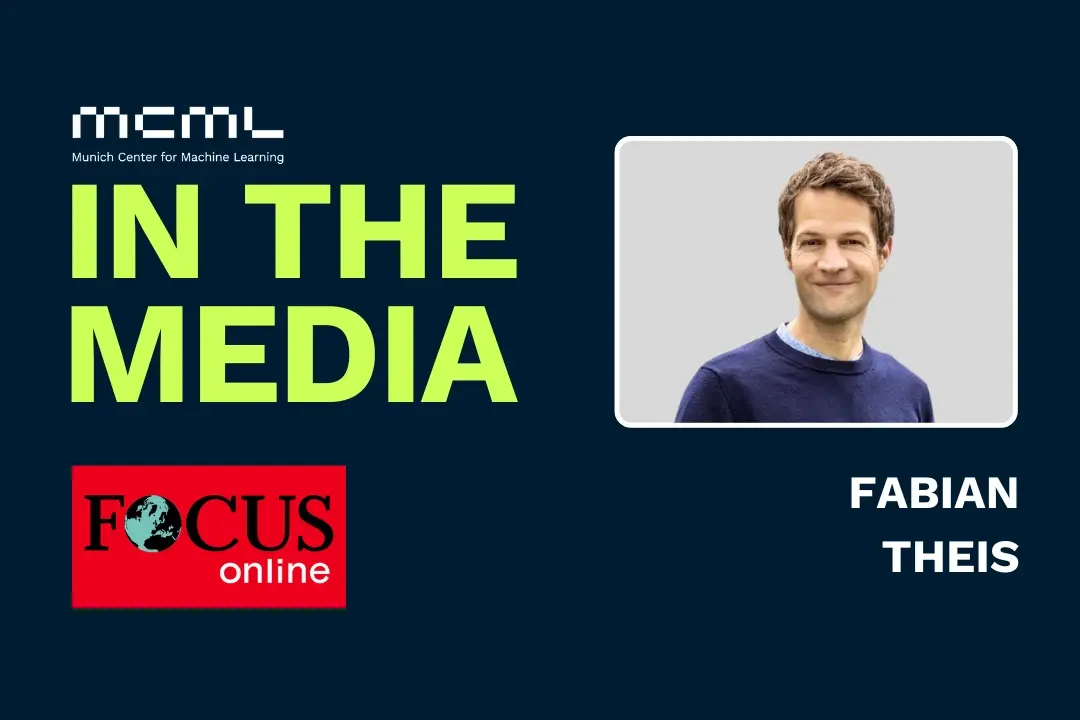
28.01.2026
Fabian Theis Featured in FOCUS Online at DLD 2026
How AI Can Support Doctors and Improve Access to Healthcare
MCML PI Fabian Theis was featured in an interview with FOCUS online at DLD Munich 2026, discussing how artificial intelligence can transform medicine. Fabian highlighted how AI can help make diagnosis …
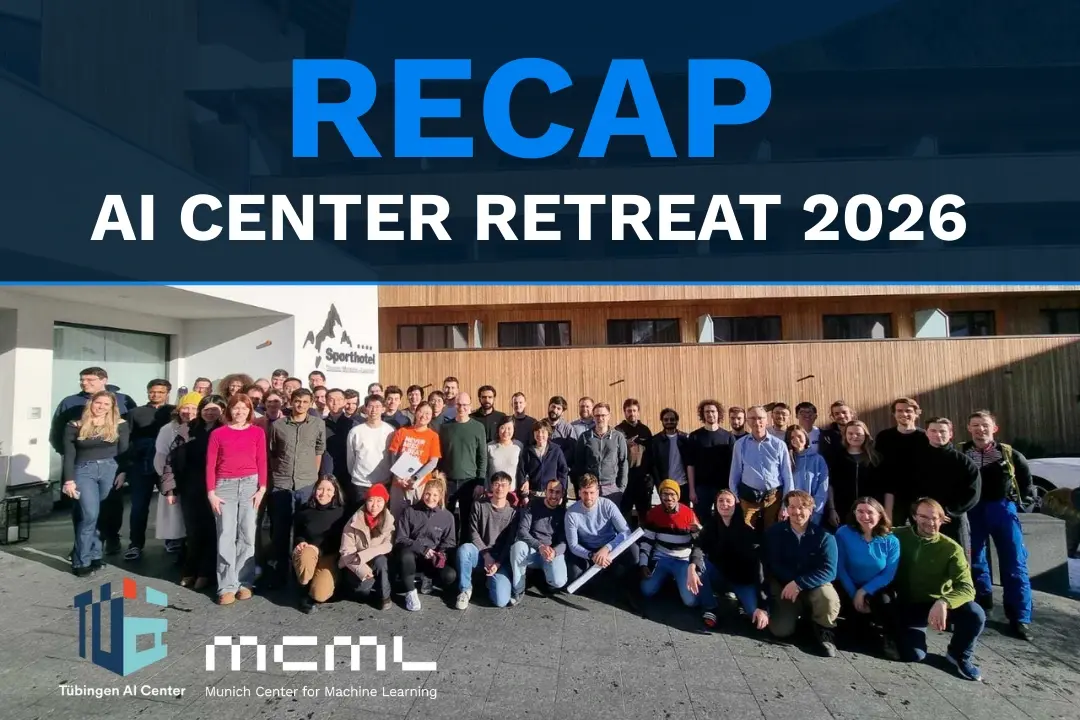
27.01.2026
Joint Retreat of MCML and TUEAI Center on the Latest Advances in Computer Vision
Short Recap
In January 2026, two research groups of the MCML and Tübingen AI Center met for a four-day retreat in Gaschurn/ Austria. About 60 researchers joined for talks and poster sessions. The joint retreat …
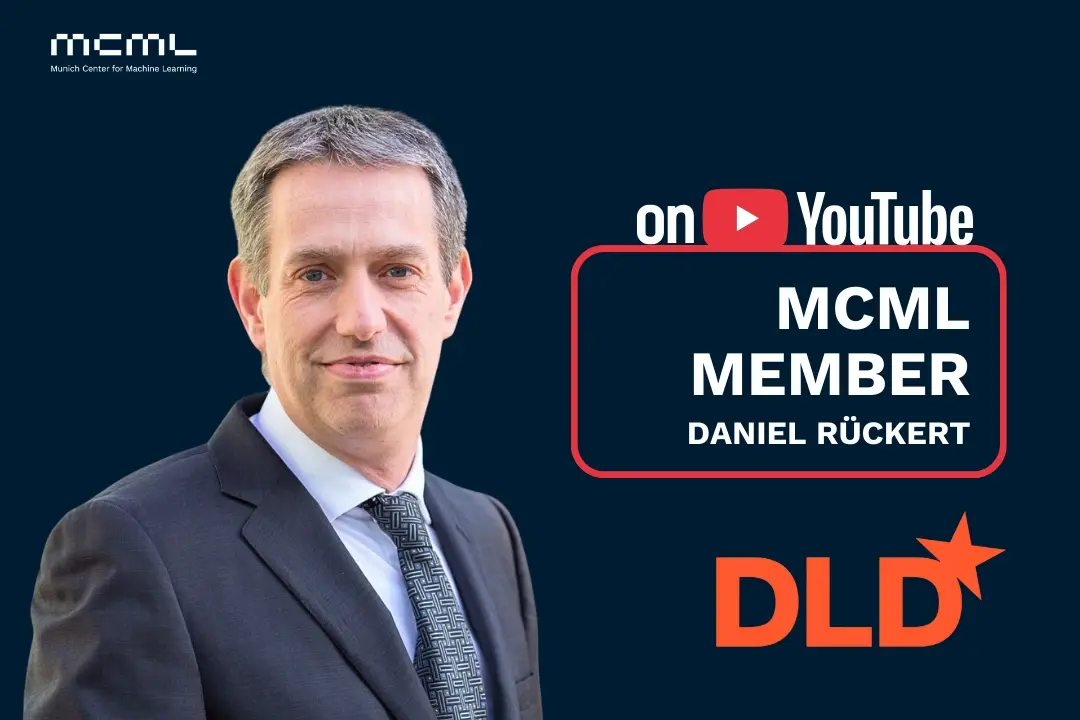
27.01.2026
Daniel Rückert Speaks at DLD Munich 2026
AI and the Future of Medicine: From Sci-Fi to Your Doctor's Office
Our Director Daniel Rückert spoke at the DLD Conference 2026 as part of the BIOSPHERE Health Track. In his talk, Daniel explored how AI is moving from science fiction into real clinical practice and …
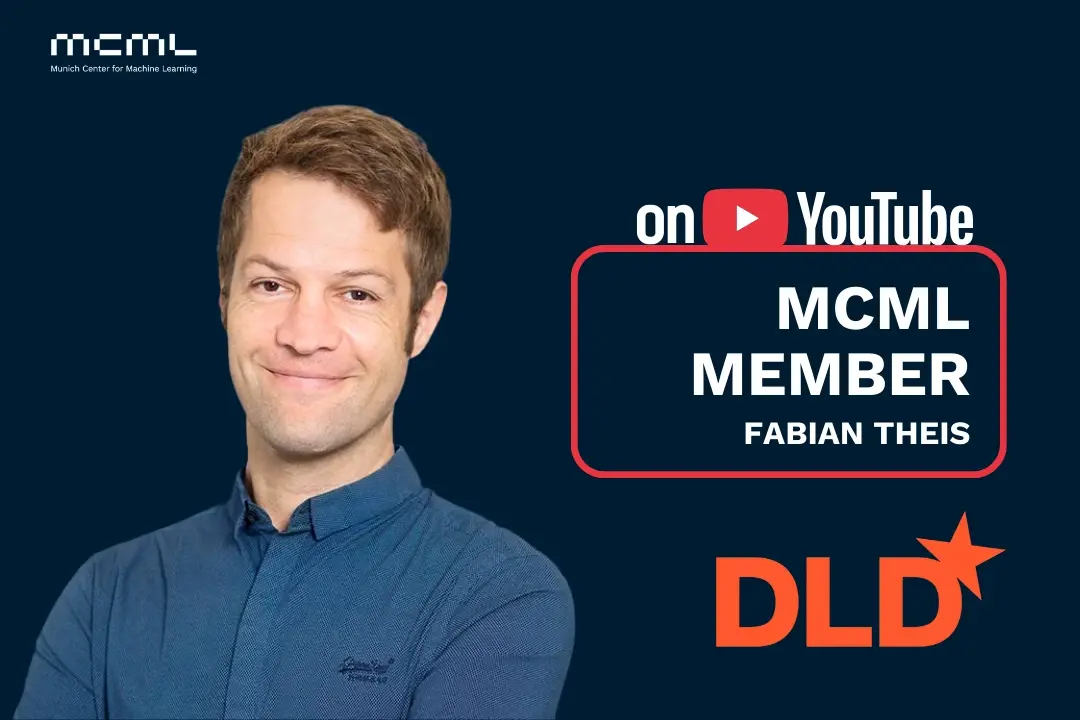
27.01.2026
Fabian Theis Speaks at DLD Munich 2026
From Models to Medicines: AI-Guided Experimental Biology
We are pleased to share that our PI Fabian Theis contributed to DLD Conference 2026 as part of the BIOSPHERE Health Track. Fabian gave a talk titled “From Models to Medicines: AI-guided Experimental …
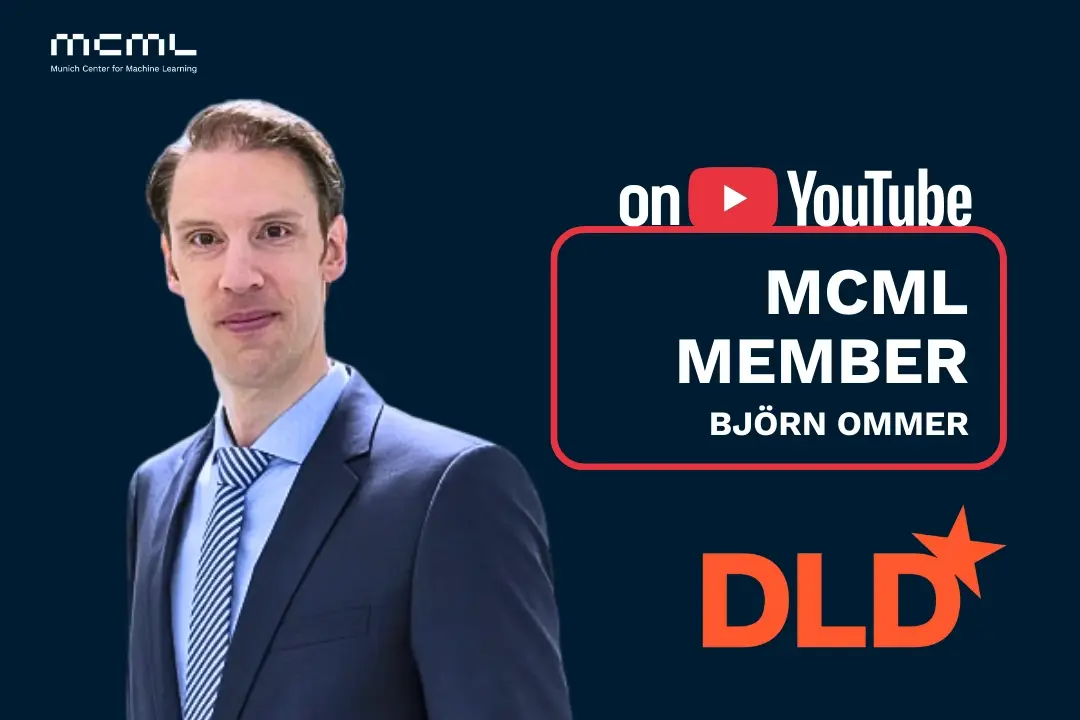
27.01.2026
Björn Ommer Speaks at DLD Munich 2026
It’s Gonna Be Wild: When AI Moves Faster Than Society
Our PI Björn Ommer was a featured speaker at DLD Munich 2026 in the session “It’s Gonna Be Wild: When AI Moves Faster Than Society”, together with LMU VP Armin Nassehi. The discussion reflects on the …
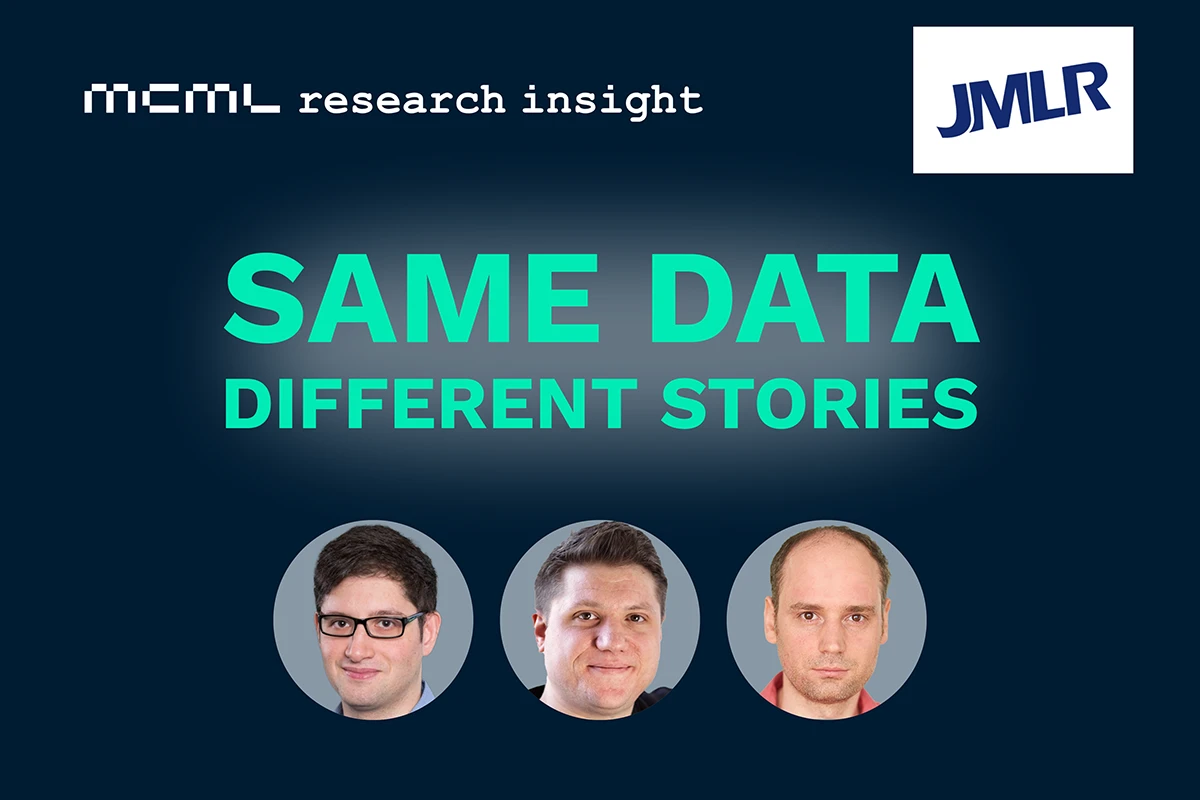
22.01.2026
From Global to Regional Explanations: Understanding Models More Locally
MCML Research Insight - With Giuseppe Casalicchio, Thomas Nagler, and Bernd Bischl
Machine learning models can be powerful, but understanding why they behave the way they do is often much harder. Early global interpretability tools were designed to show how each feature affects the …
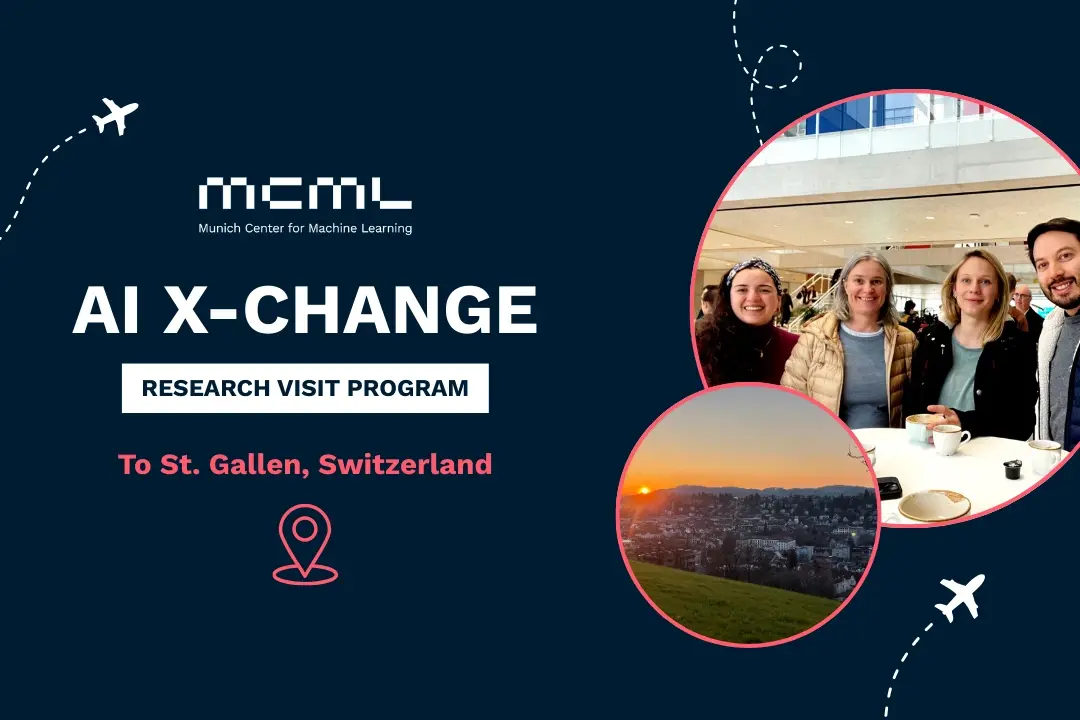
22.01.2026
Research Stay at University of St. Gallen
Andrea Maldonado – Funded by the MCML AI X-Change Program
Between Freudenberg – “happiness mountain” – and Rosenberg – “roses mountain”, I had the pleasure to visit the Institute of Computer Science (ICS-HSG) at the University of St. Gallen (HSG) in …
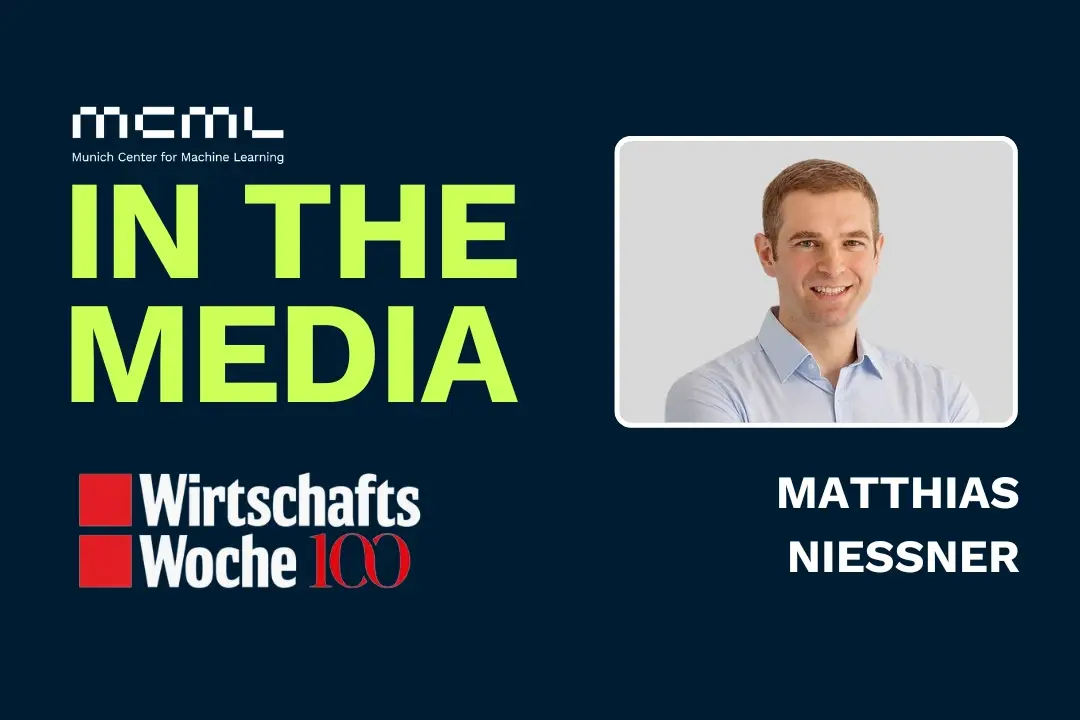
20.01.2026
MCML PI Matthias Nießner Featured in WirtschaftsWoche on Spaitial AI
German Startup Develops AI for Instant 3D Room Creation
MCML PI Matthias Nießner was featured in WirtschaftsWoche for his startup Spaitial AI, which develops AI capable of creating realistic 3D models of real-world rooms and interiors within seconds. The …
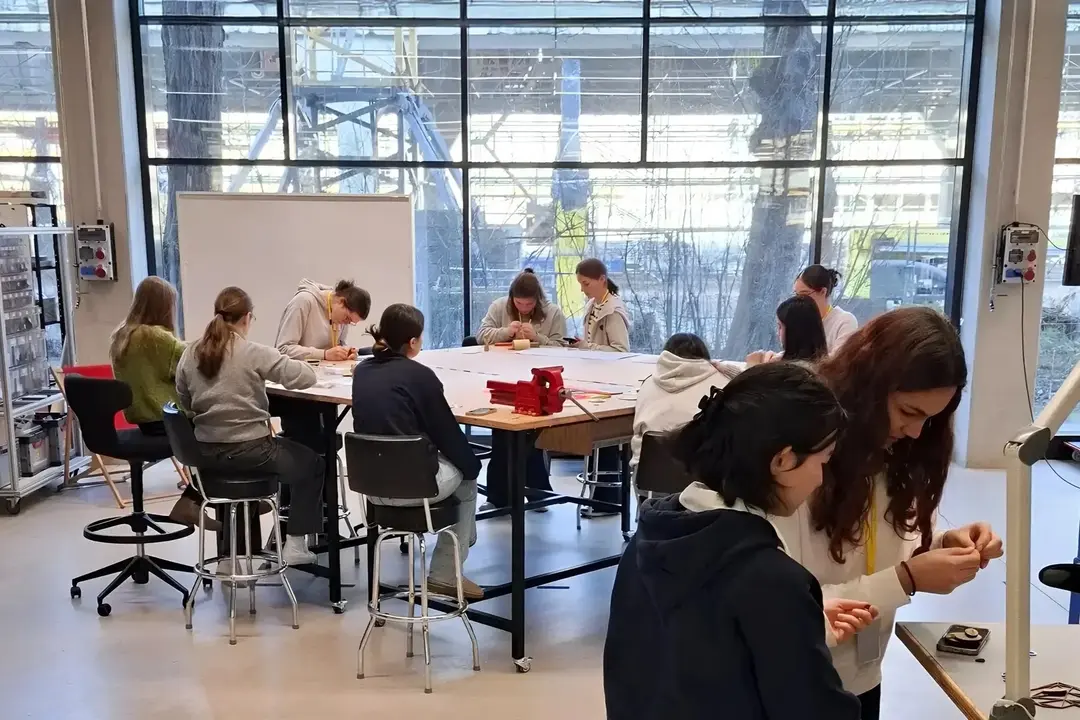
20.01.2026
MCML Supporting Girls in STEM
Encouraging Girls to Explore Science, Technology, and University Life
At the first GirlsLAB at TUM, female students from Bavarian partner schools explored STEM subjects through hands-on teamwork and creative problem-solving. While the students built chain-reaction …

19.01.2026
MCML PI Frauke Kreuter Featured on ARD Alpha on AI
Exploring Opportunities and Risks of Artificial Intelligence
MCML PI Frauke Kreuter was featured on ARD alpha, discussing how AI is shaping everyday life and the workplace. Alongside moderator Birgit Kappel and Sabine Pfeiffer, head of the Chair of Sociology at …

15.01.2026
Digdeep Podcast: Live From the CES in Las Vegas
News From the Digital World by MCML PI Frauke Kreuter and Christof Horn
In this episode of #digdeep, Christof Horn reports live from the CES, the world’s largest consumer electronics trade show in Las Vegas and now also one of the leading trade shows for the global …
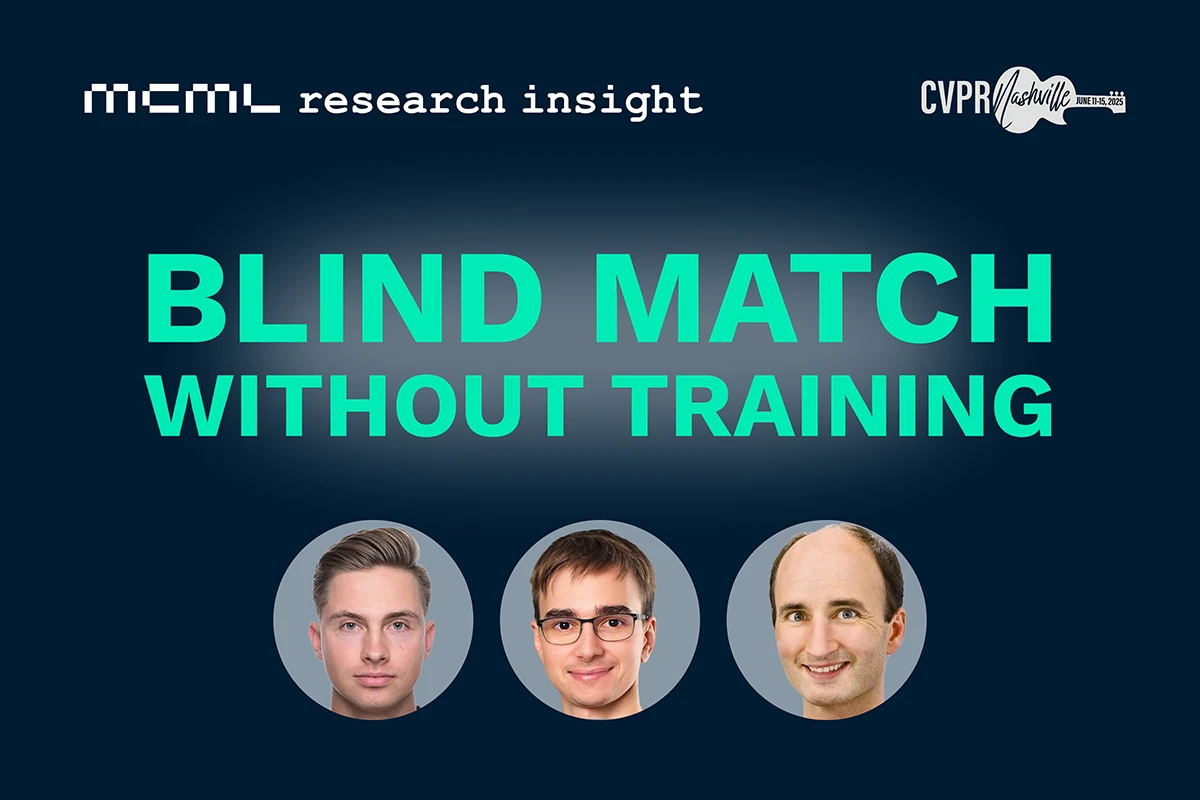
15.01.2026
Blind Matching – Aligning Images and Text Without Training or Labels
MCML Research Insight - With Dominik Schnaus, Nikita Araslanov, and Daniel Cremers
Vision-language models have shown that images and text can live in a shared space: a picture of a “cat” often lands close to the word “cat” in the embedding space. But such …
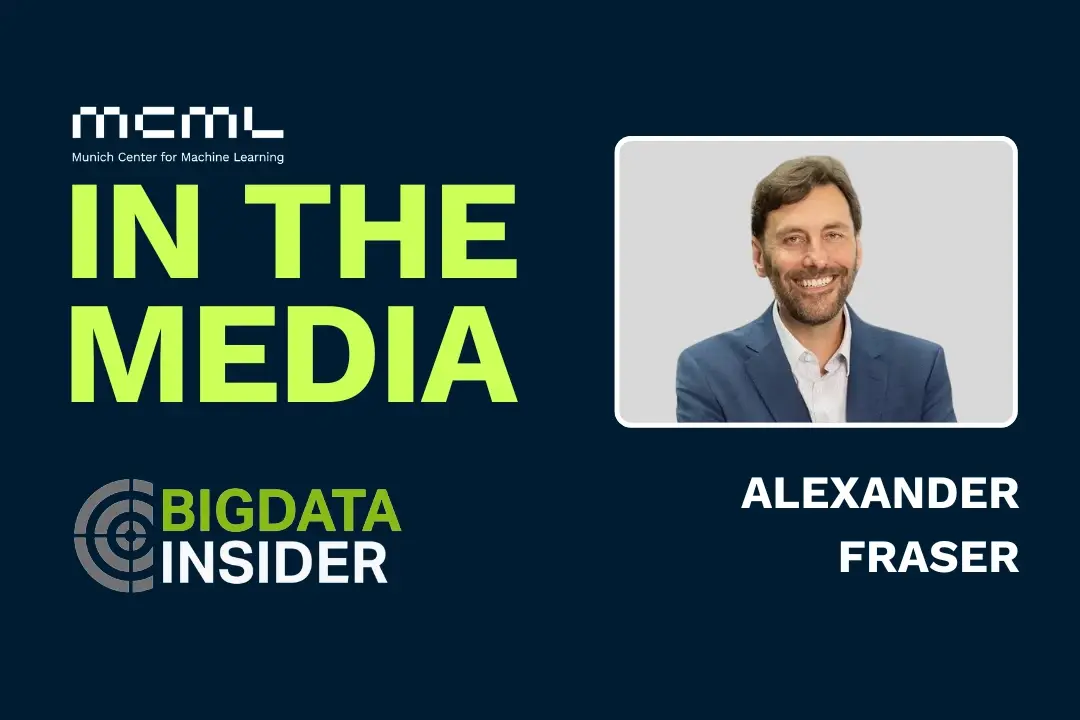
12.01.2026
MCML PI Alexander Fraser Featured on Breaking Data Podcast
Discussing AI, Language Diversity, and Low-Resource Languages
MCML PI Alexander Fraser was featured as a guest on an episode of the Breaking Data podcast, where he discussed the importance of integrating low-resource and minority languages into AI models. In …
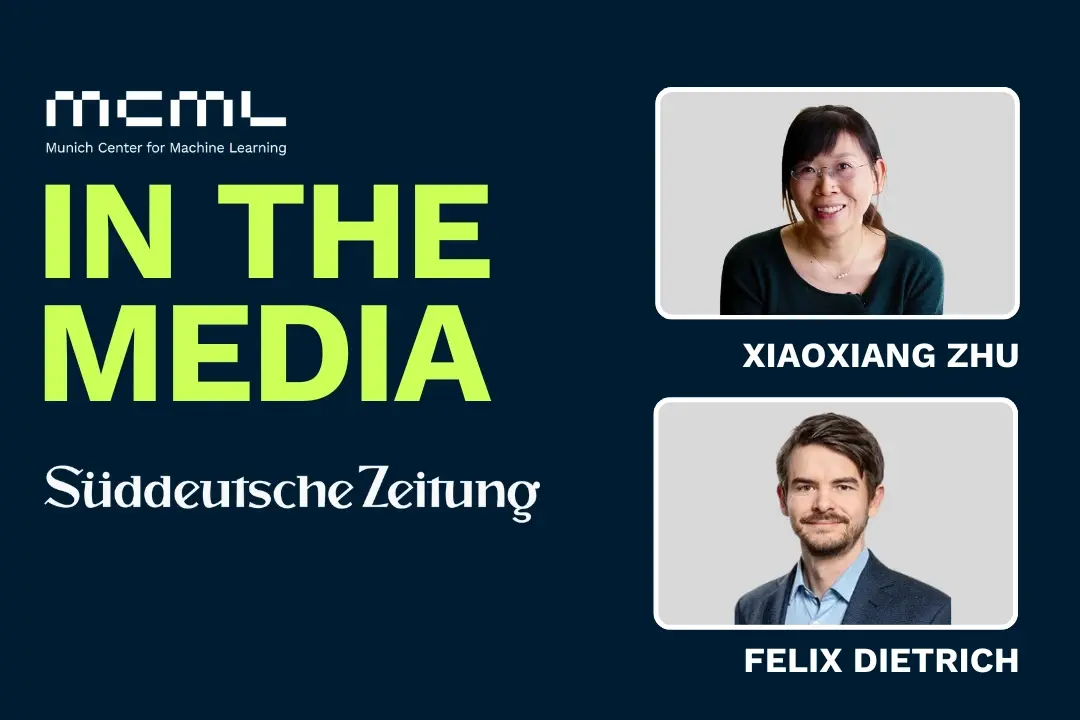
12.01.2026
MCML PIs Featured in Süddeutsche Zeitung
Innovations in Science and Technology
MCML PIs Xiaoxiang Zhu and Felix Dietrich were featured in Süddeutsche Zeitung’s coverage of TU Munich’s major scientific breakthroughs in 2025. Their work contributes to current advances in …

12.01.2026
Call for Speakers Certificate Course „Responsible AI“
We Are Seeking Speakers for the First Certificate Course on Responsible AI
The certificate course “Responsible AI” is jointly organized by the German National AI Centers. It addresses AI researchers on all levels from the centers, the participating universities, …
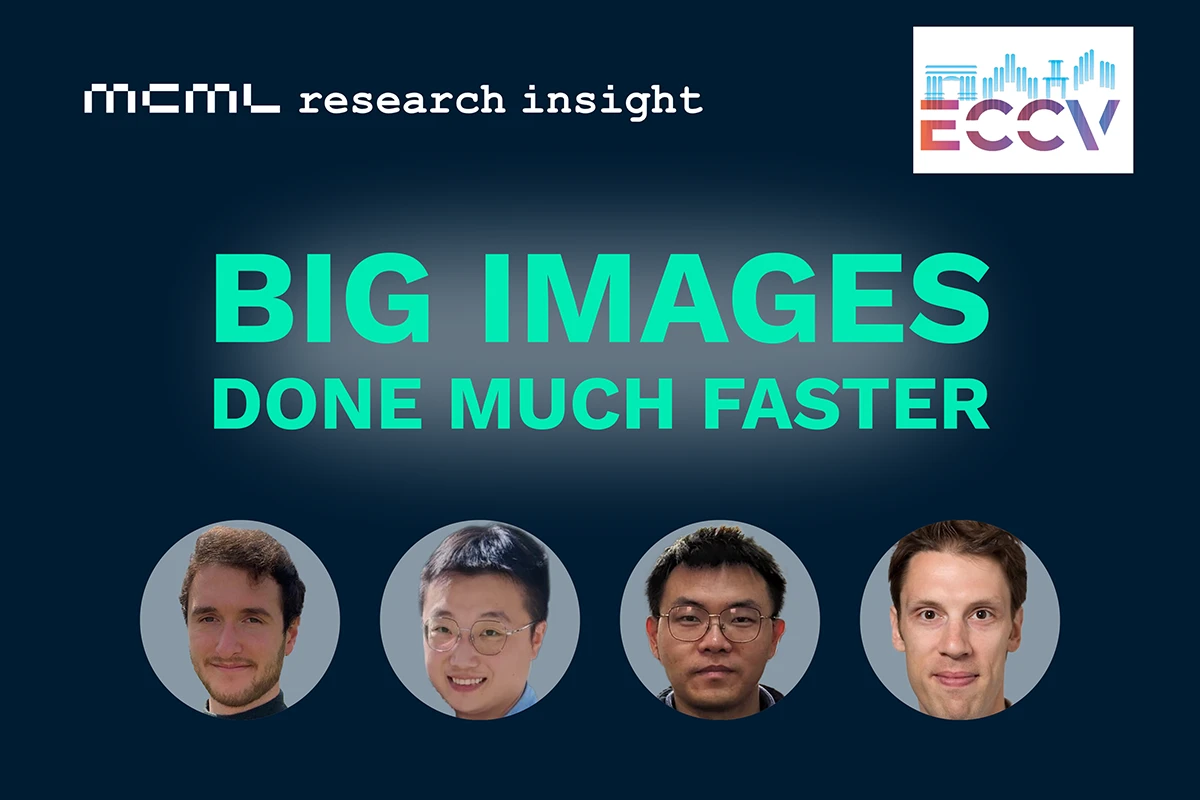
08.01.2026
High-Res Images, Less Wait: A Simple Flow for Image Generation
MCML Research Insight - With Johannes Schusterbauer, Pingchuan Ma, Vincent Tao Hu, and Björn Ommer
Image generation models today can create almost anything, like a futuristic city glowing at sunset, a classical painting of your cat, or a realistic spaceship made of glass. But when you ask them to …
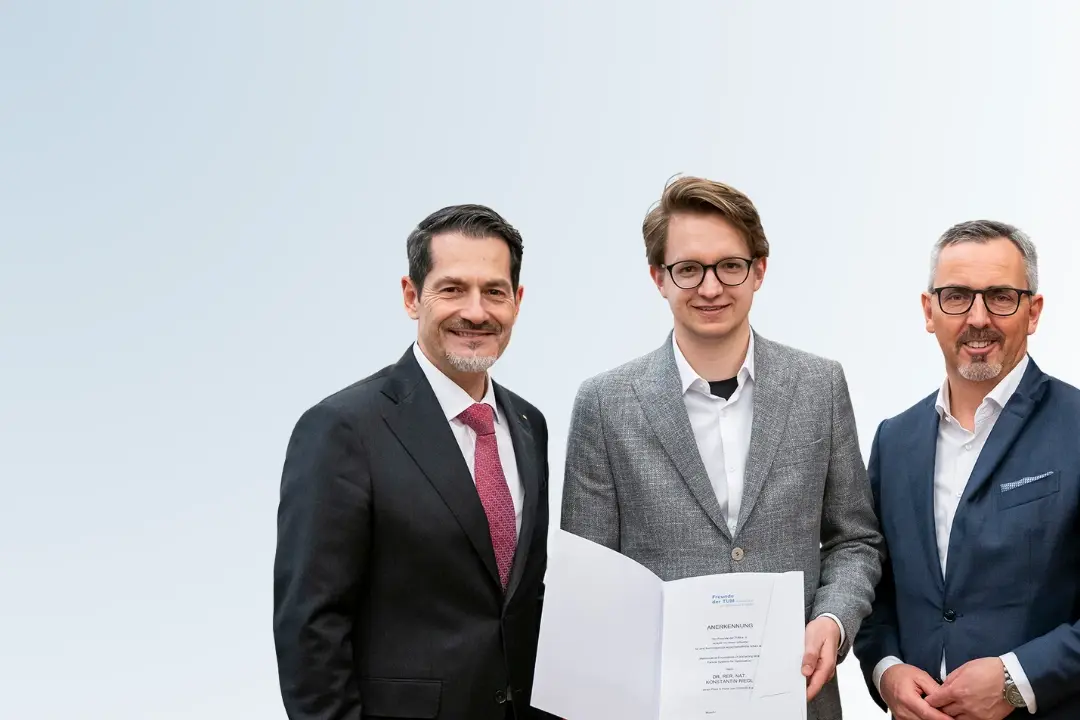
28.12.2025
Konstantin Riedl Wins Doctoral Award from the Friends of TUM e.V.
Former MCML Member Recognized for an Outstanding Doctoral Dissertation
Konstantin Riedl, former MCML member, has received the Doctoral Award of the Friends of TUM e.V., honoring one of the most outstanding doctoral dissertations at the Technical University of Munich. He …

25.12.2025
Digdeep Podcast: Armin Nassehi, How Does Social Transformation Succeed?
News From the Digital World by MCML PI Frauke Kreuter and Christof Horn
In this episode of #digdeep, the sociologist Armin Nassehi declares, how social transformation succeeds. He discusses, why social changes are often not implemented despite clear goals and great urgency …
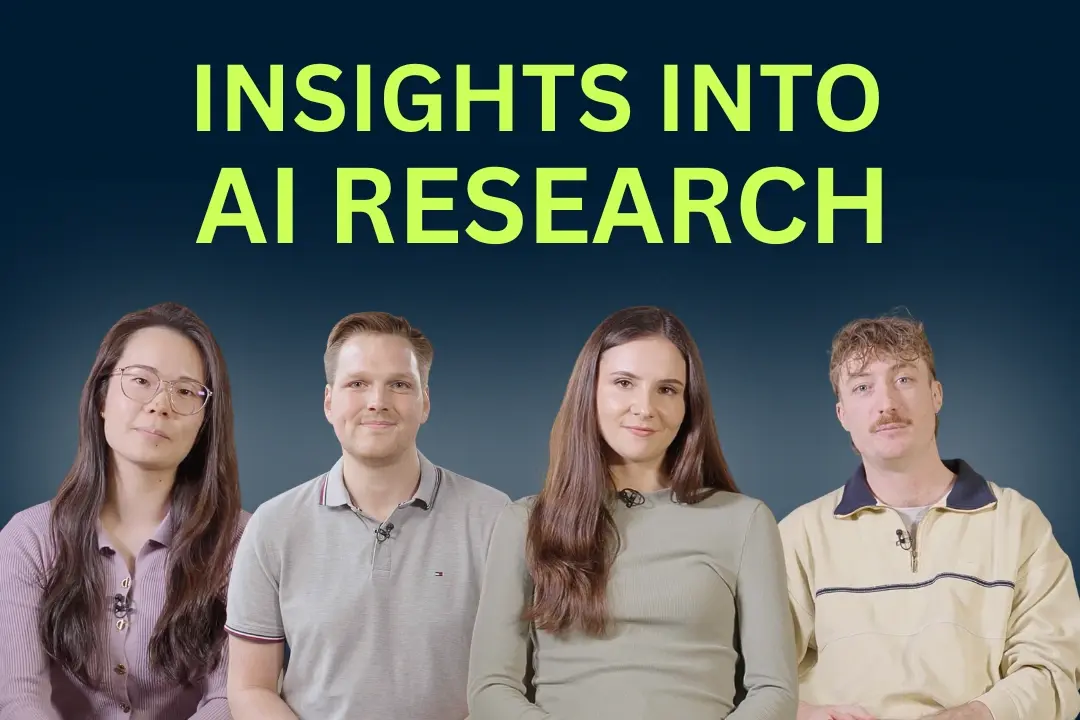
23.12.2025
MCML: Supporting Teachers in the Use of AI in Education
Using AI Effectively in Teaching and Learning
Teachers need support to keep up with rapid technological change and to adapt teaching and learning to the demands of an increasingly digital world. While new technologies are widely available, they …
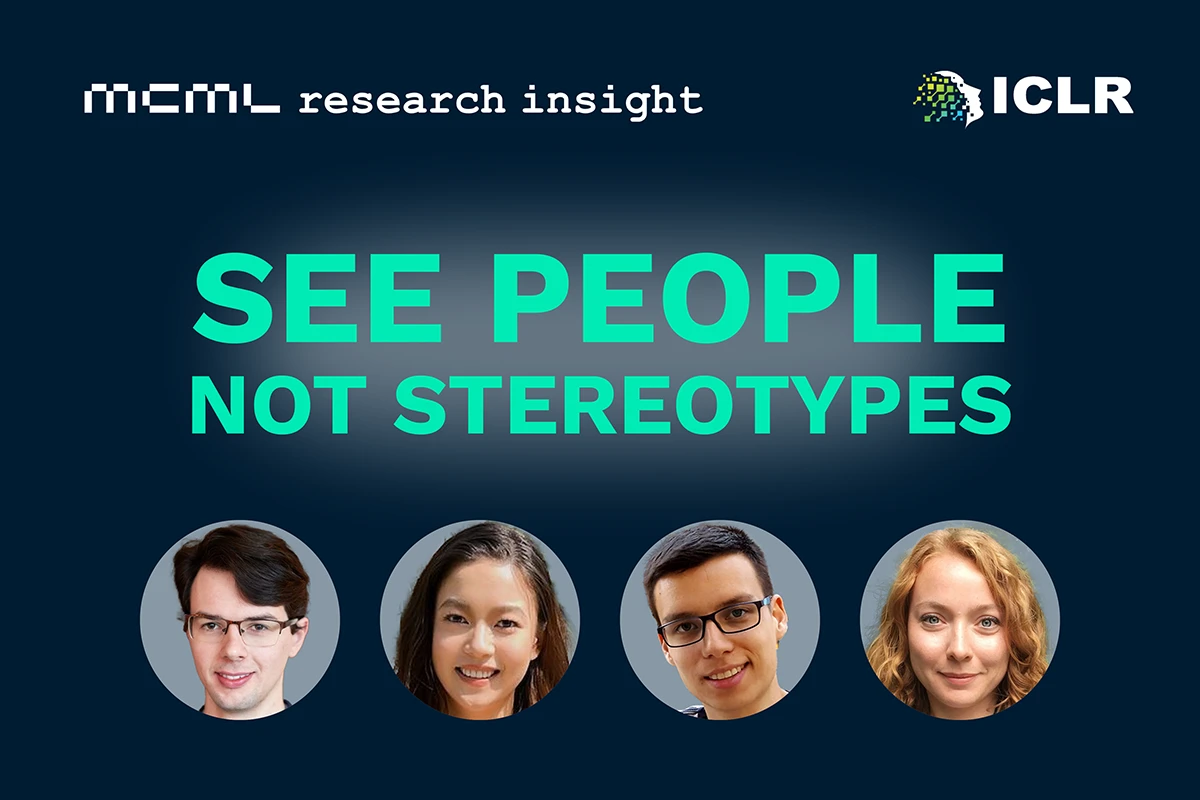
18.12.2025
"See, Don’t Assume": Revealing and Reducing Gender Bias in AI
MCML Research Insight - With Leander Girrbach, Yiran Huang, Stephan Alaniz and Zeynep Akata
Using AI and LLMs at work feels almost unavoidable today: they make things easier, but they can also go wrong in important ways. One of the trickiest problems? Gender bias. For example, if you ask …
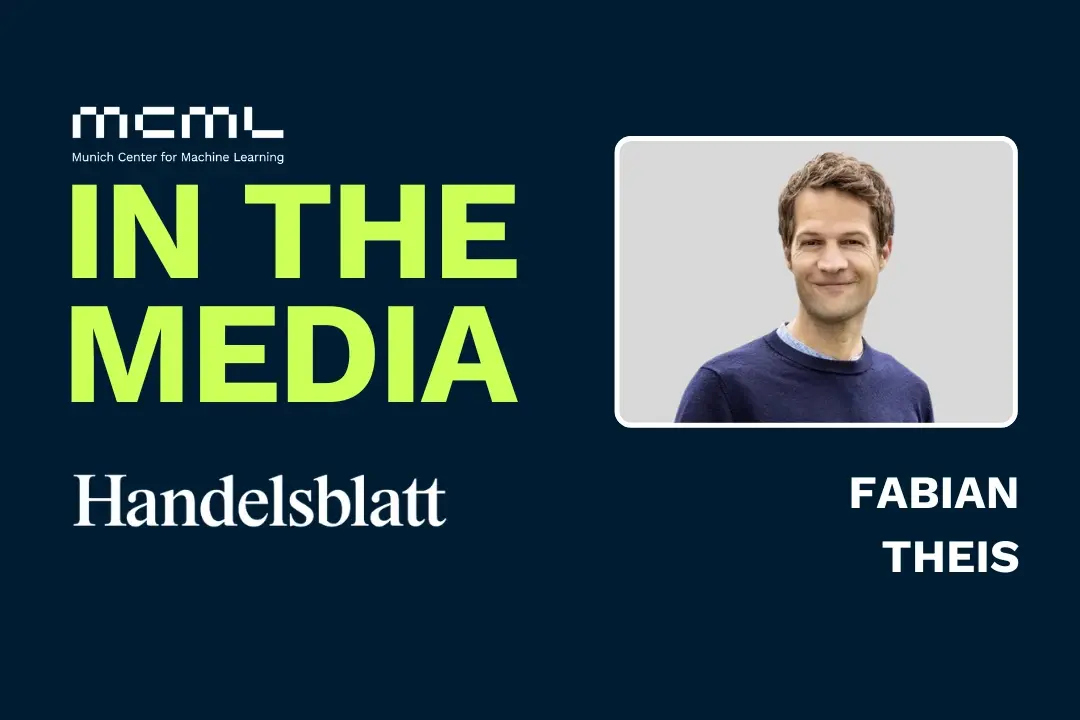
16.12.2025
Fabian Theis Featured in Handelsblatt on the Future of AI in Precision Medicine
Artificial Intelligence and Biomedical Research
Our PI Fabian Theis was recently featured in an interview exploring how artificial intelligence is reshaping modern healthcare. As a leading researcher in AI-driven biomedical data analysis, he …
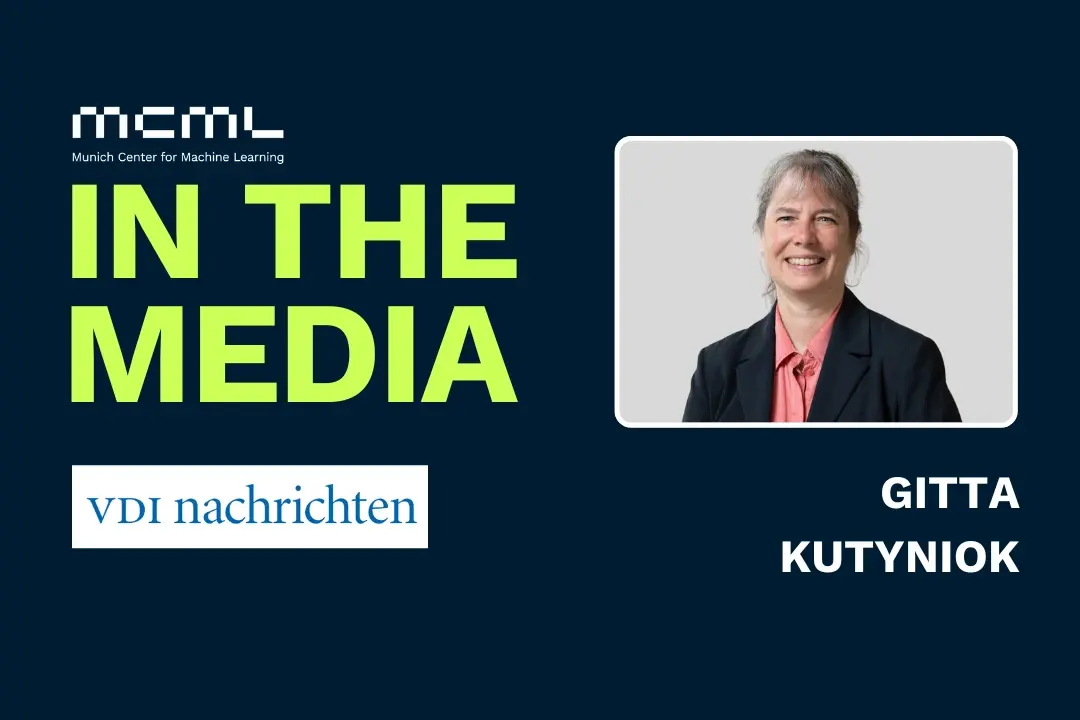
16.12.2025
Gitta Kutyniok Featured in VDI Nachrichten on AI Ethics
Defining Measurable Criteria for Responsible AI Agents
Our PI Gitta Kutyniok was featured in VDI Nachrichten discussing ethical and safety challenges for autonomous AI agents. She emphasizes the need for measurable criteria to guide AI decision-making, …

16.12.2025
Hinrich Schütze Featured in WirtschaftsWoche on Innovative AI Approaches
Advancing Language Models With Memory-Efficient and Context-Aware AI
Our PI Hinrich Schütze commented on the Swiss start-up Giotto.ai’s breakthrough in language models, featured in WirtschaftsWoche. Giotto.ai challenges the prevailing trend of ever-larger AI models by …
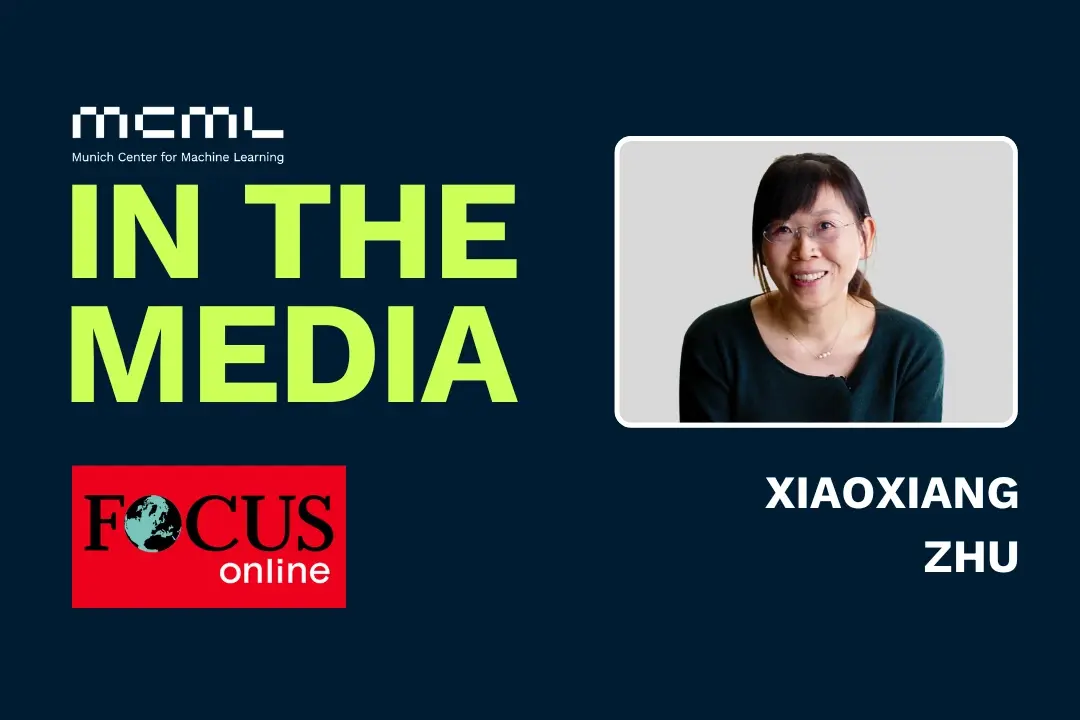
16.12.2025
Xiaoxiang Zhu Featured in Focus Online on Global 3D Building Atlas
AI-Driven 3D Mapping Reveals Urbanization, Infrastructure, and Social Insights
Our PI Xiaoxiang Zhu and her team have created a Global Building Atlas, mapping 2.75 billion buildings in 3D. Using satellite data and AI, the atlas captures building footprints, geometry, and height, …

11.12.2025
Digdeep Podcast: Will AI Be the New Colleague, Prof. Sabine Pfeiffer?
News From the Digital World by MCML PI Frauke Kreuter and Christof Horn
In the new episode of #digdeep, Sabine Pfeiffer from FAU Erlangen-Nuremberg talks about AI as a new colleague. An MIT study shows that artificial intelligence is widespread in everyday life, but lags …
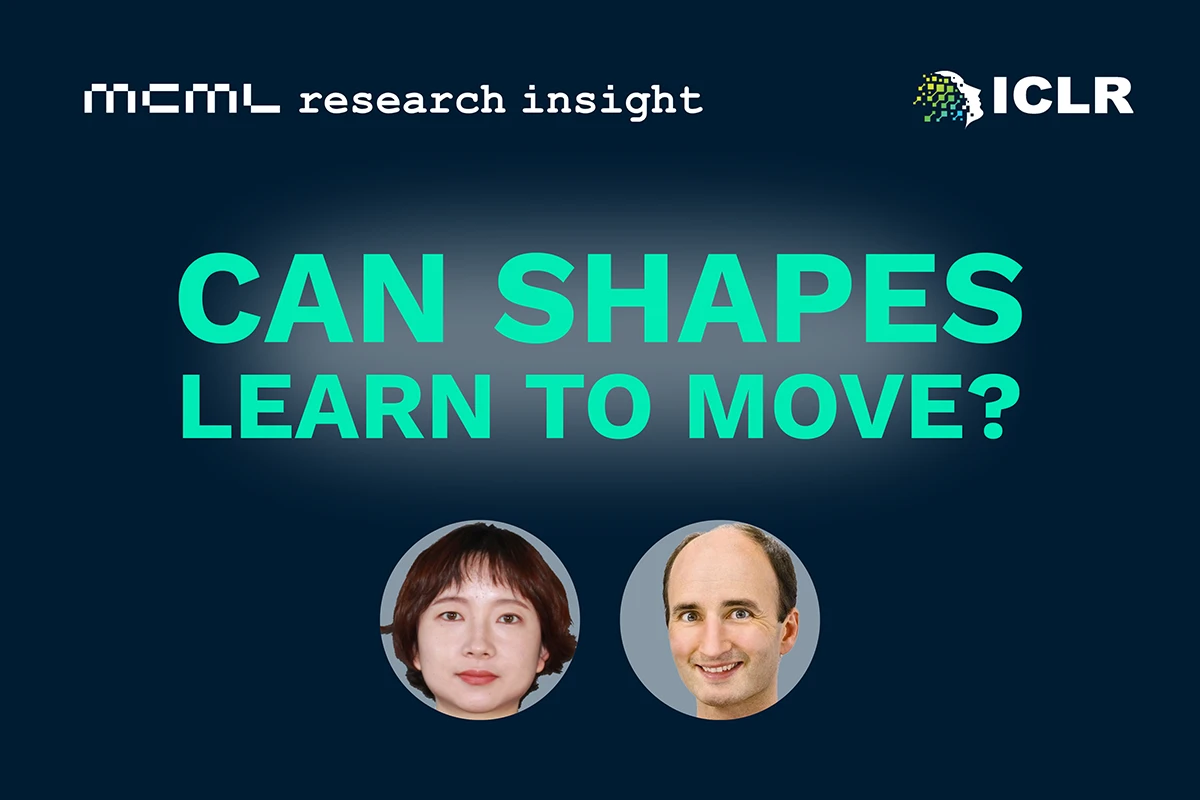
11.12.2025
From Sitting Dog to Standing: A New Way to Morph 3D Shapes
MCML Research Insight - With Lu Sang and Daniel Cremers
Ever wondered how a 3D shape can smoothly change — like a robot arm bending or a dog rising from sitting to standing — without complex simulations or hand-crafted data? Researchers from MCML and the …
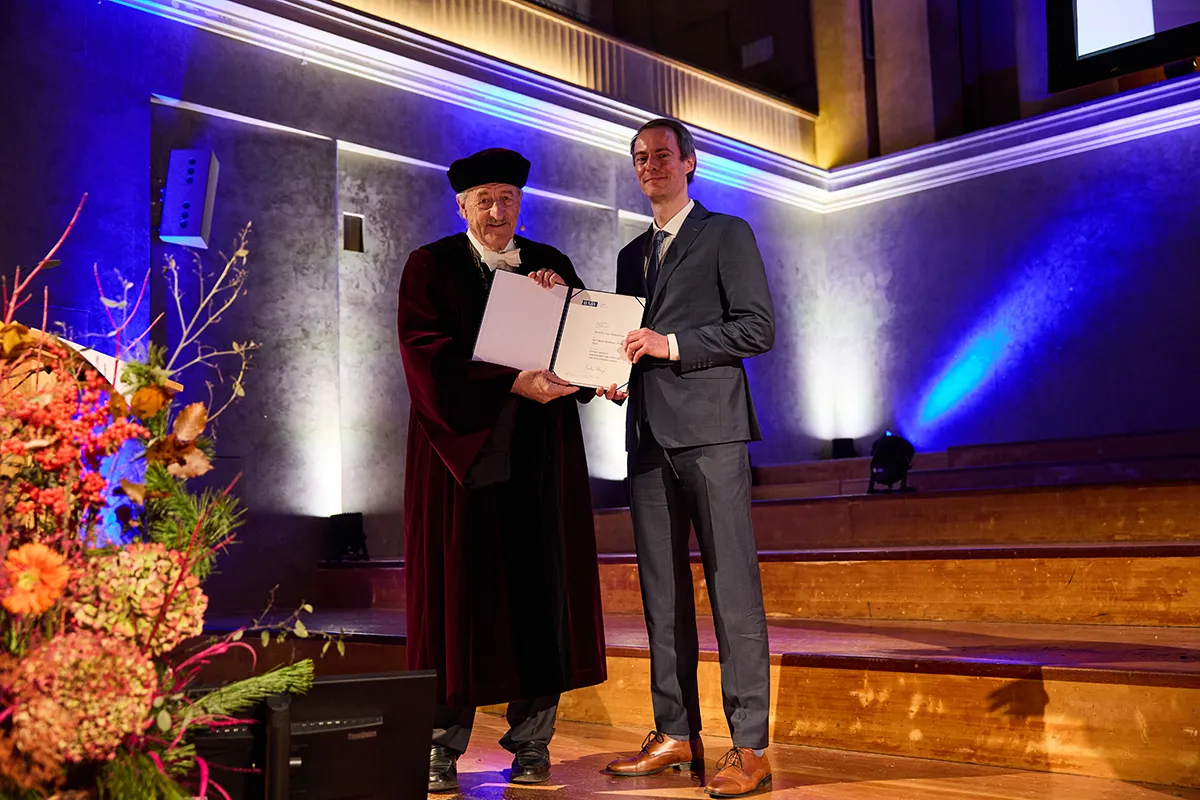
©BAdW / Karl Neunert
08.12.2025
Tom Sterkenburg Wins Karl-Heinz Hoffmann Prize of the Bavarian Academy of Sciences
Honored for His Work at the Intersection of Philosophy, Statistics, and Machine Learning
MCML JRG Leader Tom Sterkenburg has been awarded the Karl-Heinz Hoffmann Prize of the Bavarian Academy of Sciences and Humanities (BAdW). The prize was presented at the Academy’s Ceremonial Annual …
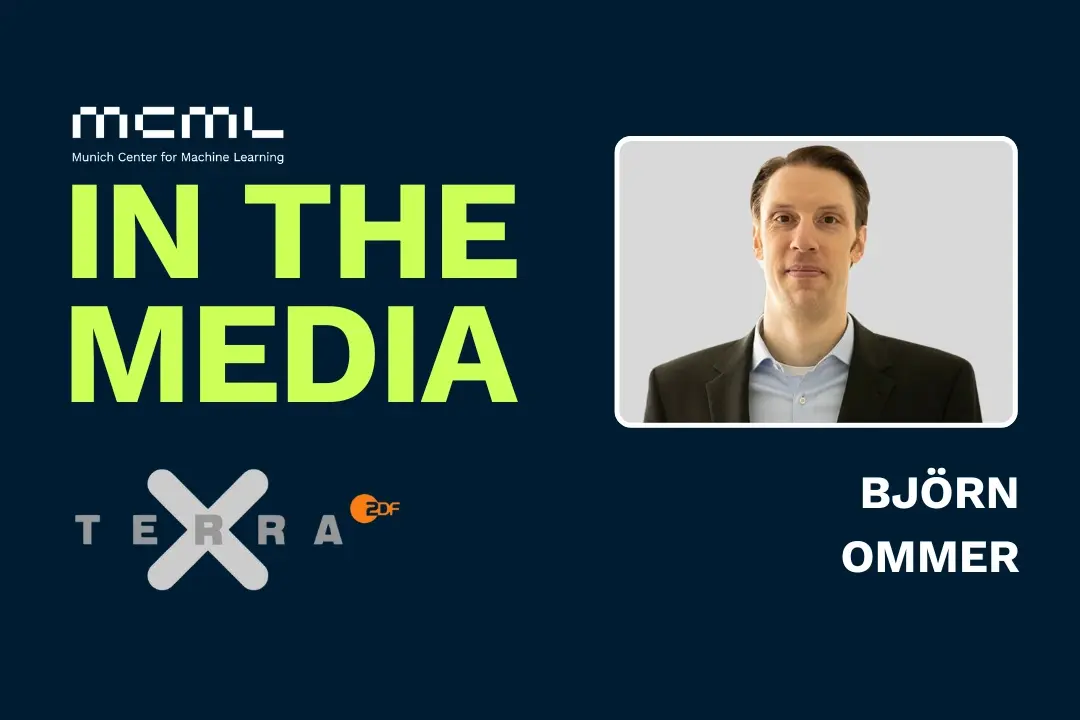
08.12.2025
Björn Ommer Guest on ZDF’s Terra X
Image-Generative AI and Visual Understanding
Our PI Björn Ommer was a guest in the ZDF science series Terra X - moderated by Harald Lesch - where he explained how image-generative AI works and how systems like Stable Diffusion enable machines to …
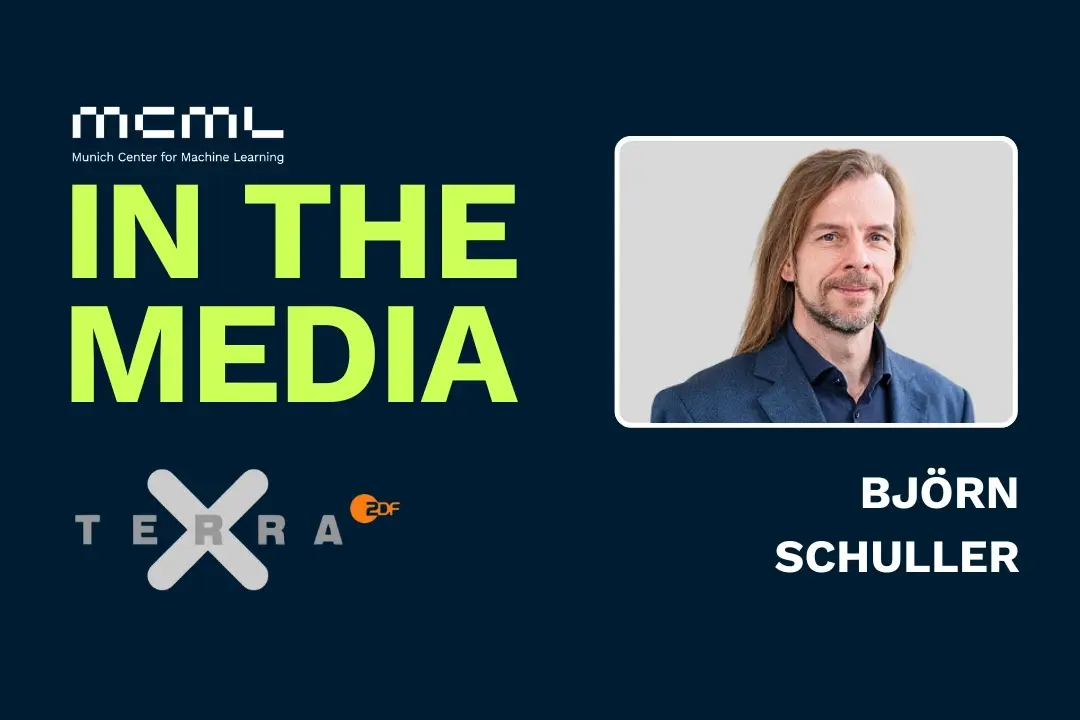
08.12.2025
Björn Schuller Guest on ZDF’s Terra X
Emotion Recognition and Empathic AI
Our PI Björn Schuller was a guest in the ZDF science series Terra X - moderated by Harald Lesch, where he discussed the fundamentals of Affective Computing and the role of emotion recognition in …
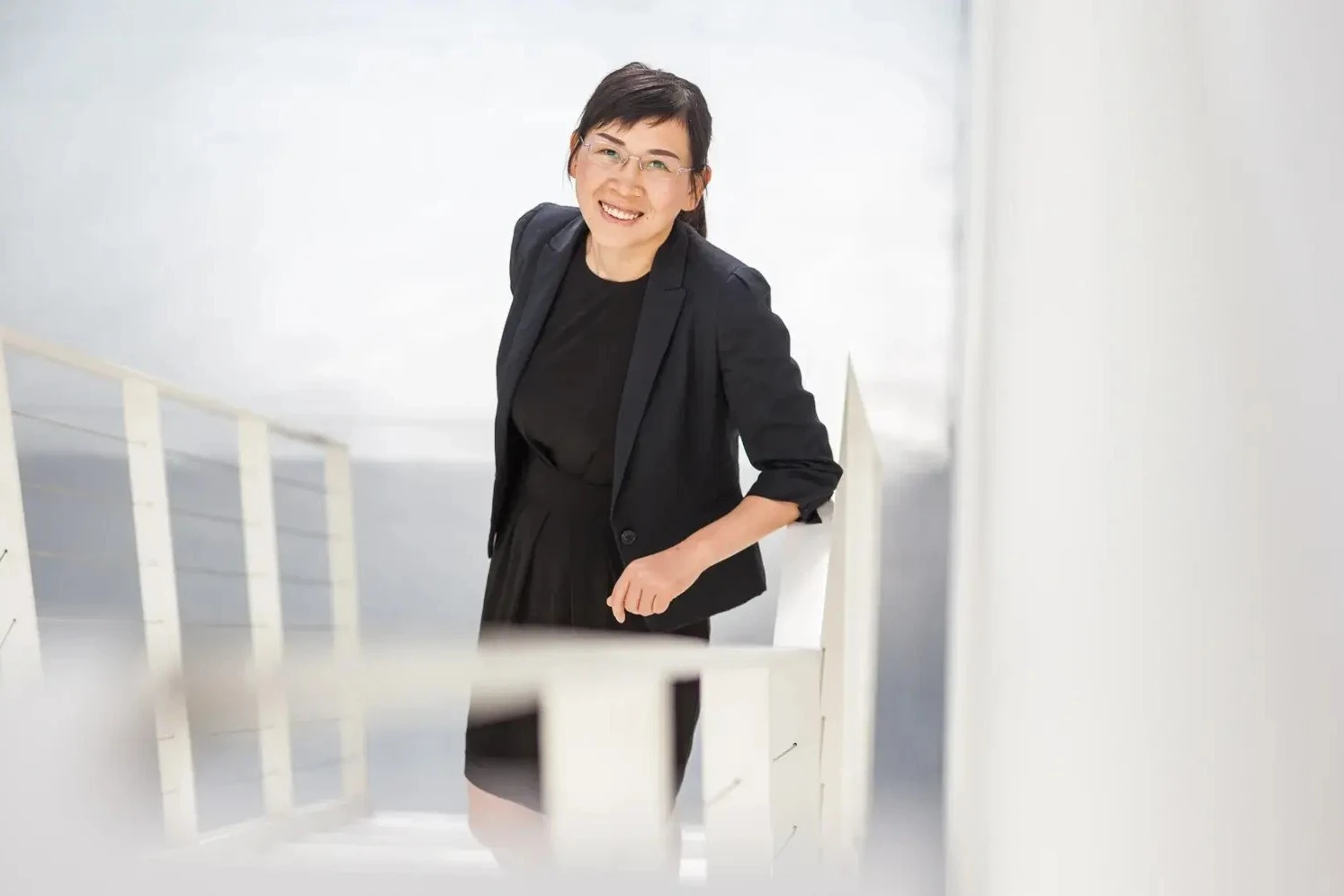
©Juli Eberle / TUM / ediundsepp Gestaltungsgesellschaft
04.12.2025
All the World's Buildings Available as 3D Models for the First Time
Xiaoxiang Zhu’s Team Releases GlobalBuildingAtlas
With the GlobalBuildingAtlas, the research team led by MCML PI Xiaoxiang Zhu has created the first high-resolution 3D map of all buildings worldwide. The open data provides a crucial basis for climate …
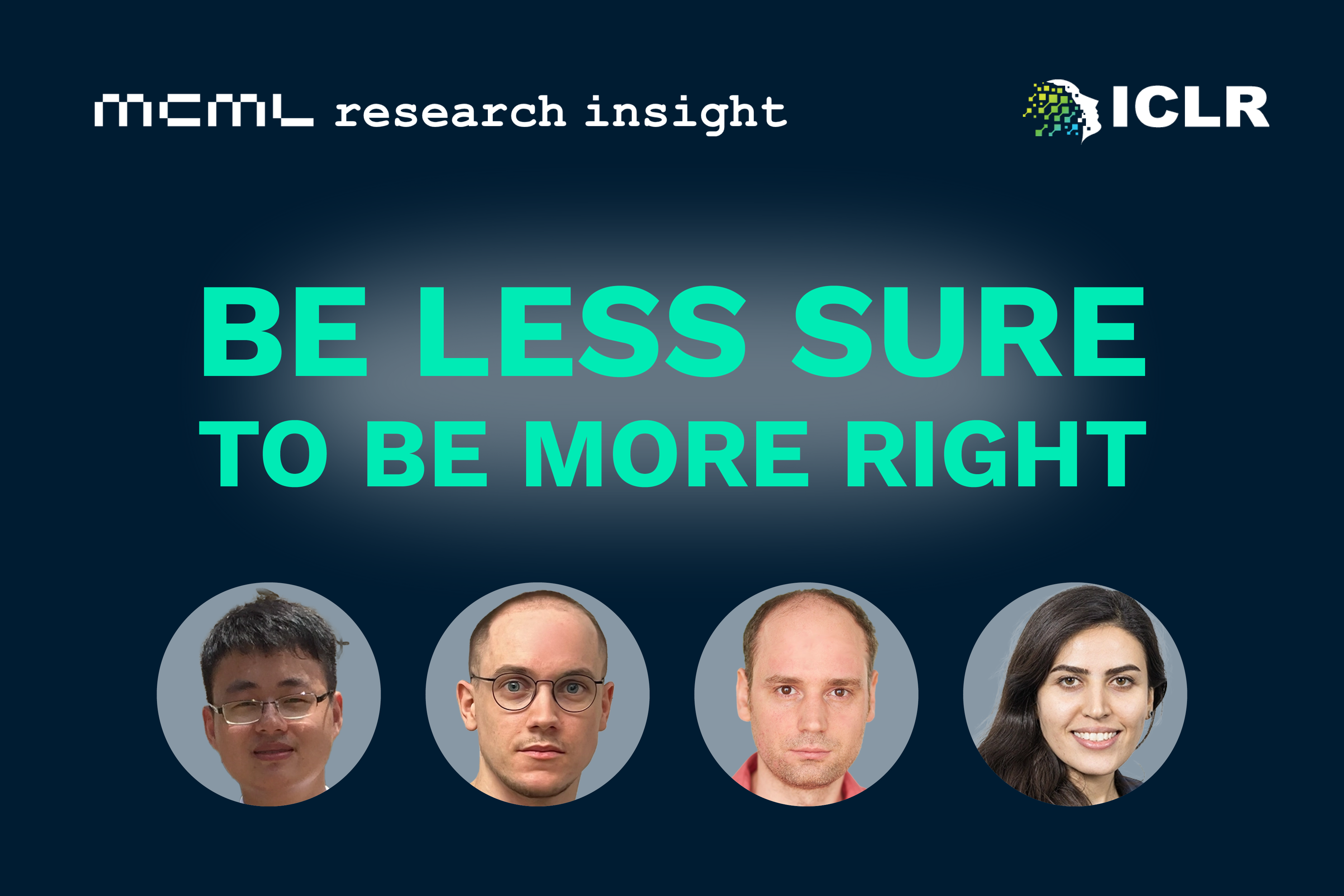
04.12.2025
When to Say "I’m Not Sure": Making Language Models More Self-Aware
MCML Research Insight - With Yawei Li, David Rügamer, Bernd Bischl, and Mina Rezaei
Large language models like ChatGPT or Gemini are now everywhere, from summarizing text to writing code or answering simple questions. But there’s one thing they still struggle with: admitting …
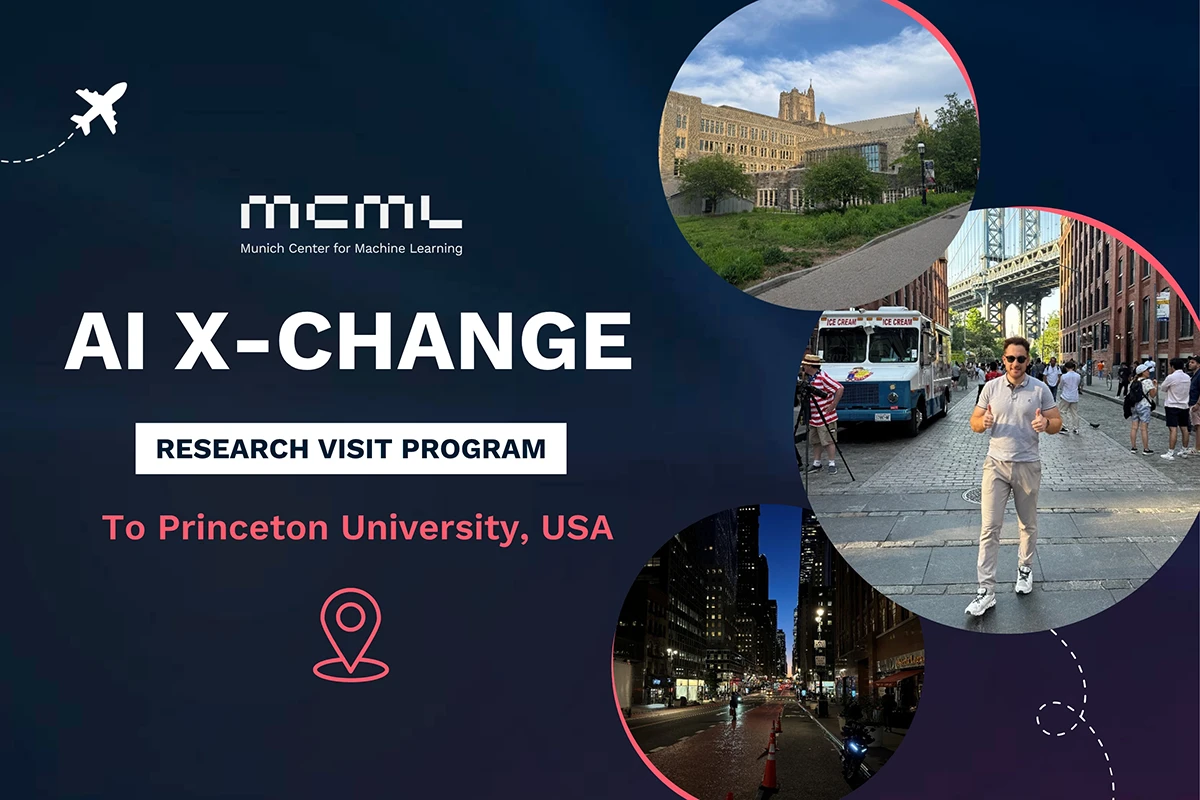
01.12.2025
Research Stay at Princeton University
Abdurahman Maarouf – Funded by the MCML AI X-Change Program
From May to July, I spent three exciting months as a visiting researcher at the Computer Science Department of Princeton University, hosted by Prof. Manoel Horta Ribeiro. The visit grew out of a …
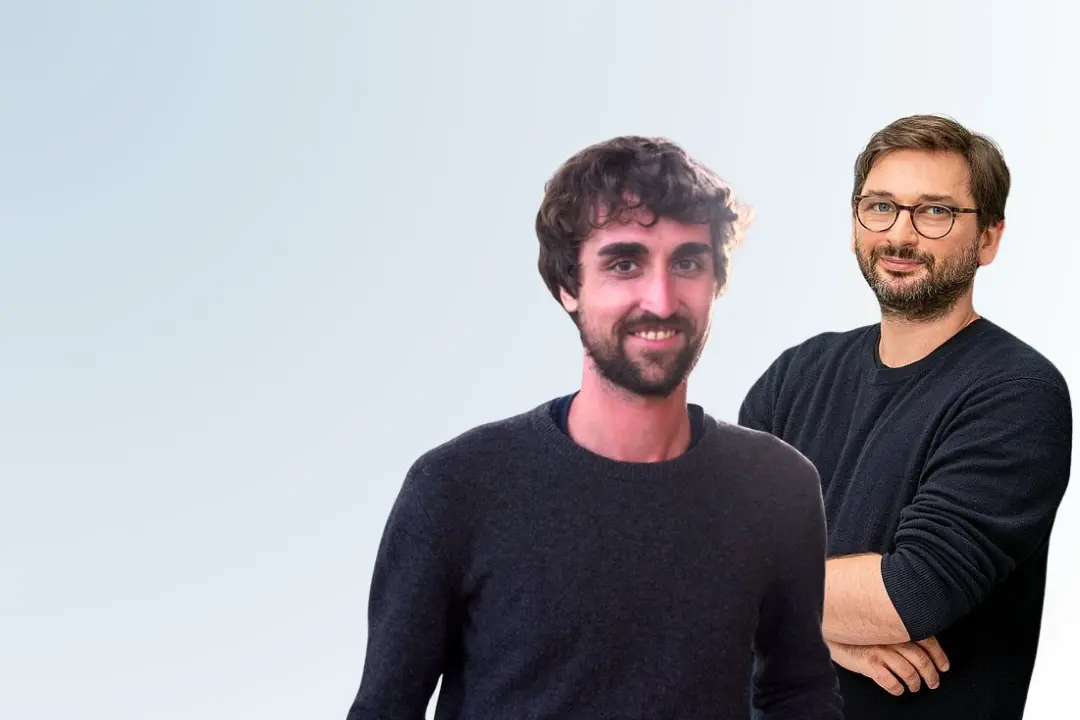
27.11.2025
Daniel Grün and Lukas Heinrich Receive BMFTR Funding for Physics Foundation Models
Developing Advanced AI Tools for Astro- And Particle Physics
MCML PIs Daniel Grün and Lukas Heinrich are part of the newly funded Germany-wide project “SciFM,” supported by the BMFTR, which aims to develop foundation models for astro- and particle physics. …
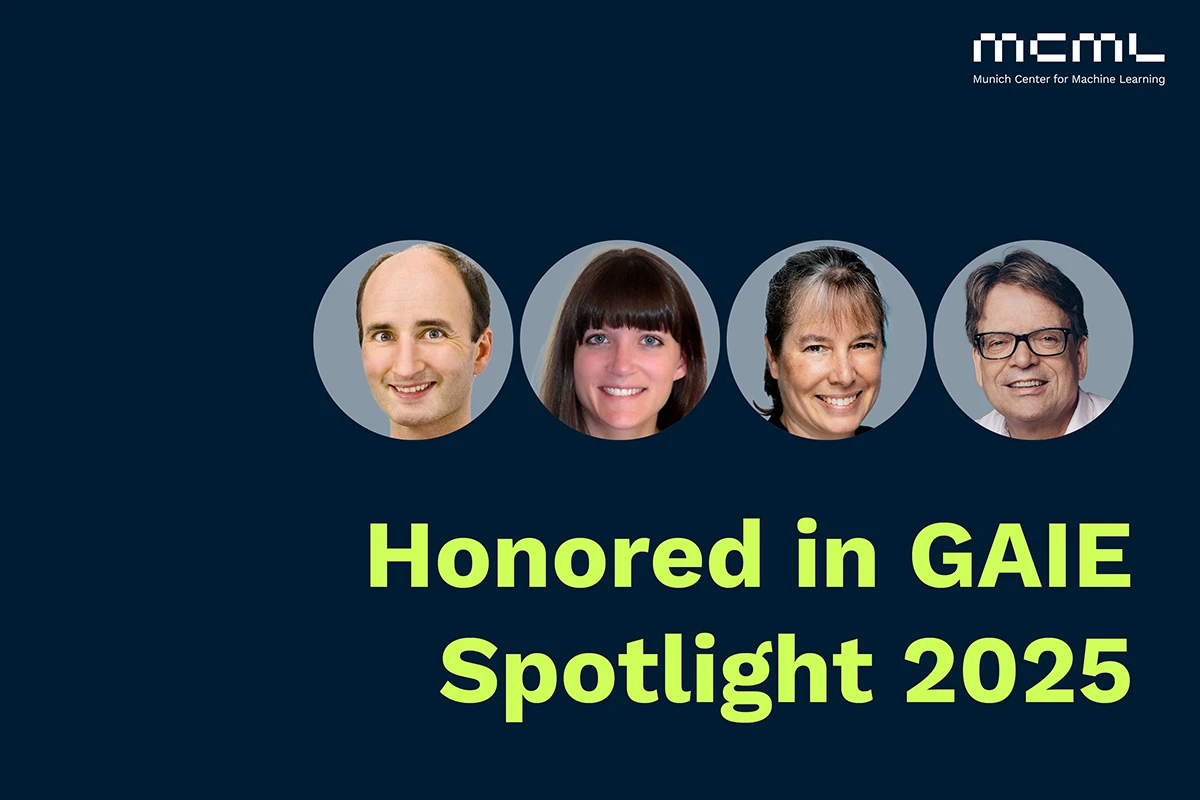
27.11.2025
MCML Members Honored in GAIE Spotlight 2025
Recognized for Their Contributions to AI Research and Innovation in Germany
Four members of the MCML have been selected for the GAIE Spotlight Series: Leading 30 German AI Experts & Academics 2025. The list recognizes outstanding researchers shaping the future of …
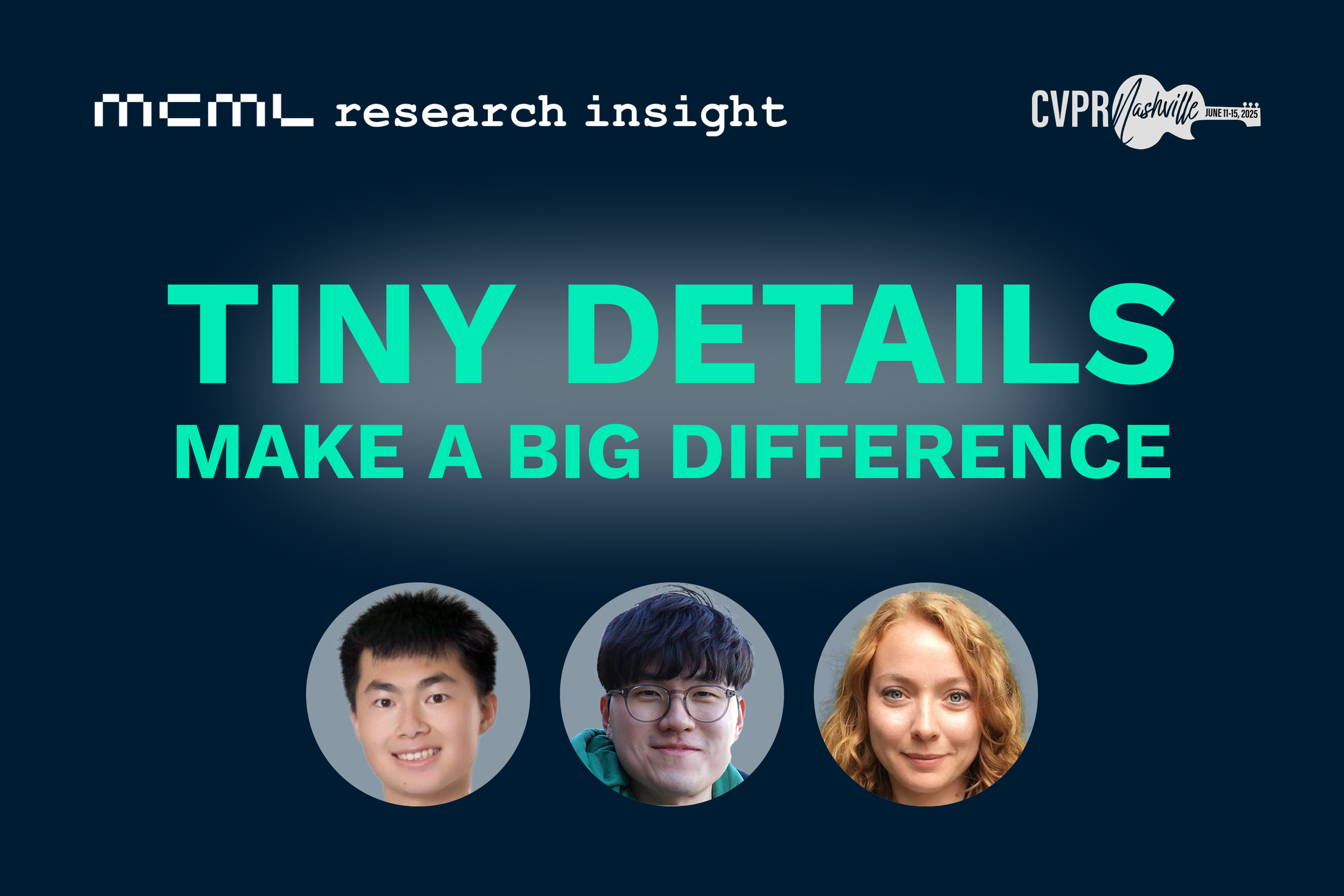
27.11.2025
Seeing the Bigger Picture – One Detail at a Time
MCML Research Insight - With Rui Xiao, Sanghwan Kim, and Zeynep Akata
Large vision-language models (VLMs) like CLIP (Contrastive Language-Image Pre-training) have changed how AI works with mixed inputs of images and text, by learning to connect pictures and words. Given …
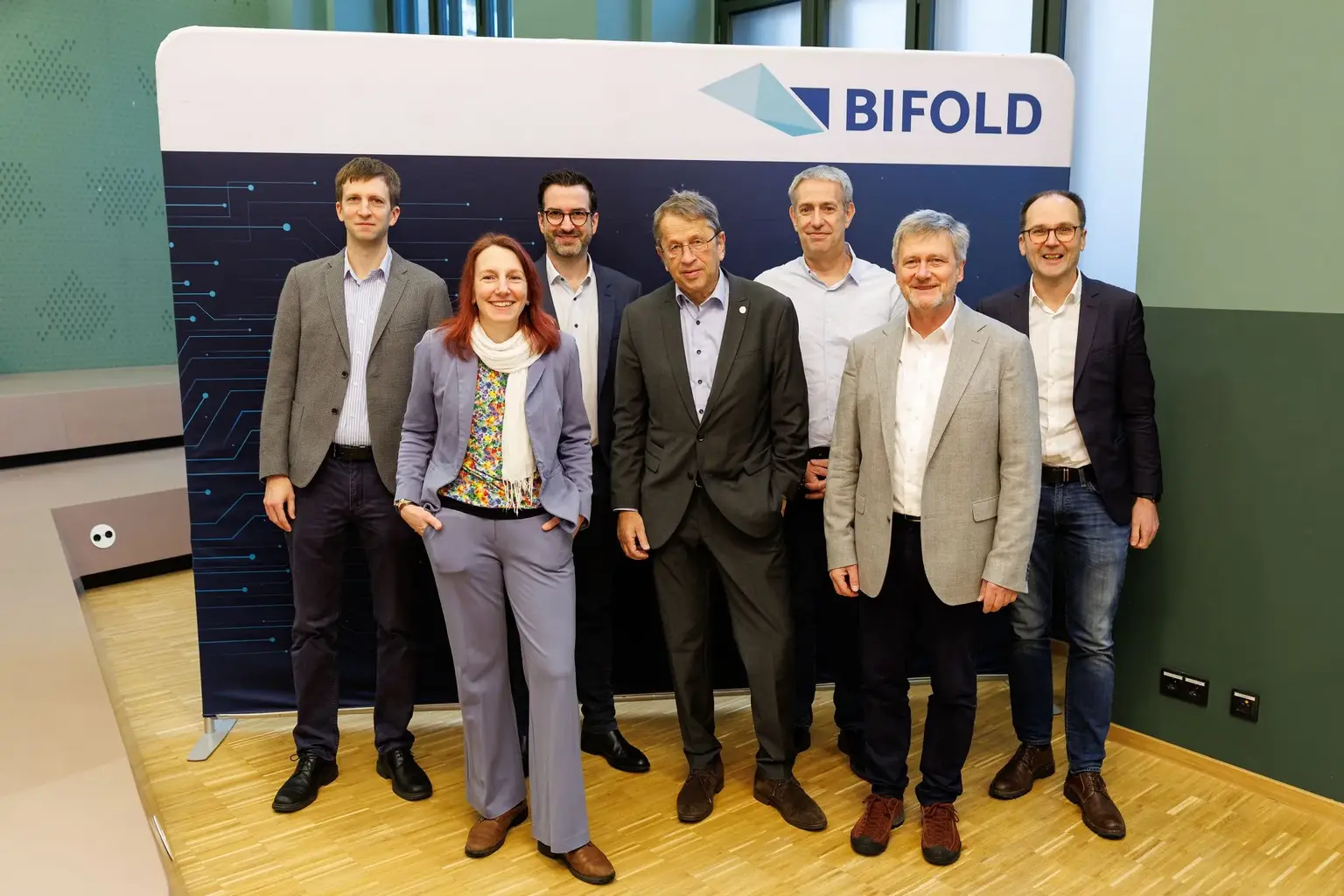
©BIFOLD/Michael Setzpfandt
25.11.2025
How Will Artificial Intelligence Redefine Medicine in the Next Decade?
MCML Keynote at AI in Medicine Workshop 2025
The AI in Medicine Workshop 2025 brought together more than 120 experts from medicine and computer science at the Baltic, Charité’s innovation hub for digital health.
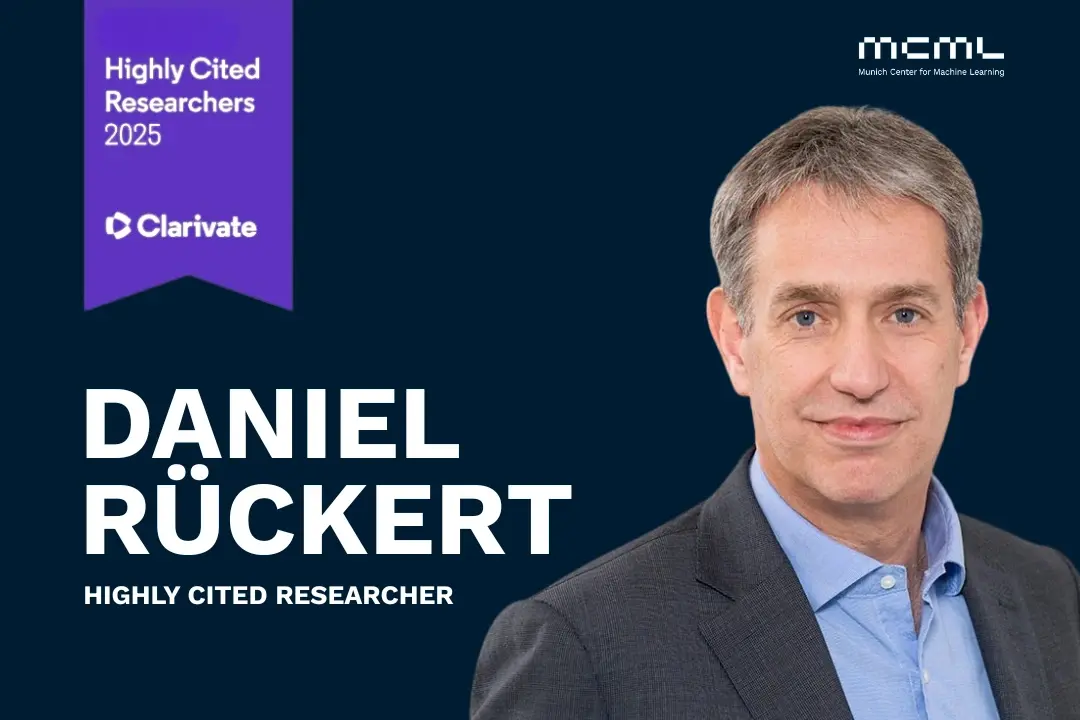
25.11.2025
Daniel Rückert Among the World’s Most Cited Researchers
TUM News
MCML Director Daniel Rückert is listed among the world’s most frequently cited researchers in the Cross-Field category for his work on artificial intelligence in healthcare and medicine. In total, 17 …

20.11.2025
Digdeep Podcast: How Does Synera Shape Product Development of the Future, Moritz Maier?
News From the Digital World by MCML PI Frauke Kreuter and Christof Horn
In the new episode of #digdeep, Moritz Mayer talks about the shape product development of Synera. Developing physical products requires specialized knowledge and the use of complex tools. Moritz Maier …
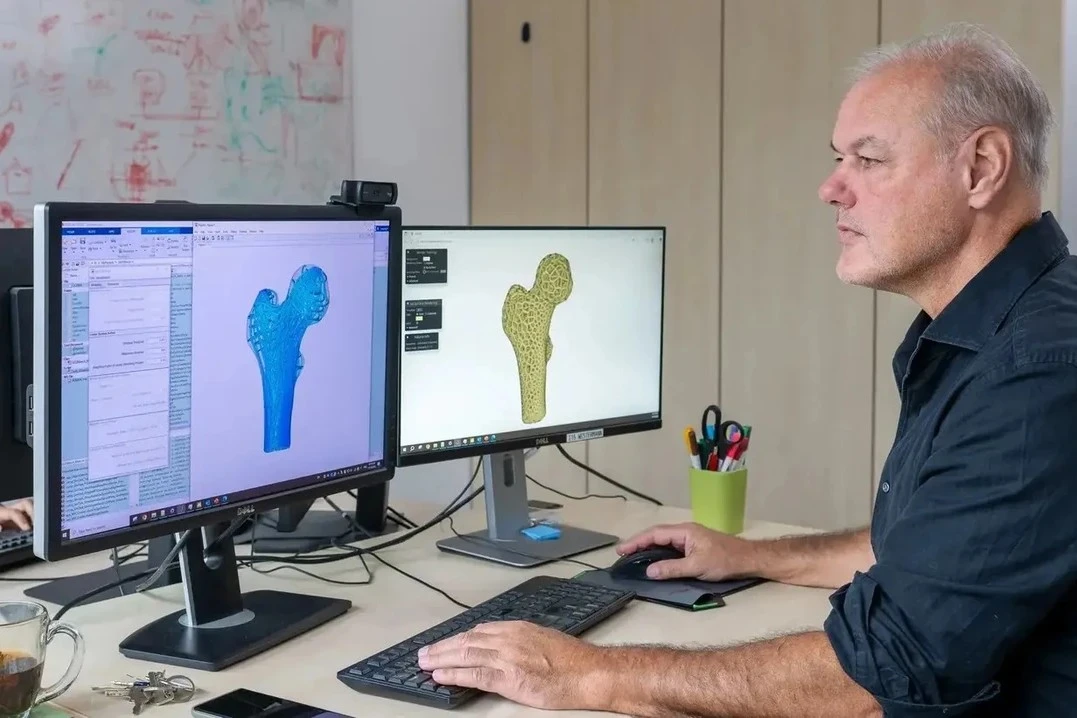
©Andreas Heddergott / TUM
20.11.2025
Uniform Reference System for Lightweight Construction Methods
Rüdiger Westermann Develops Benchmark for Lightweight Design
How can components be designed for an optimal balance of minimal weight and maximum robustness? This is a challenge faced by many industries, from medical device manufacturing to the automotive and …
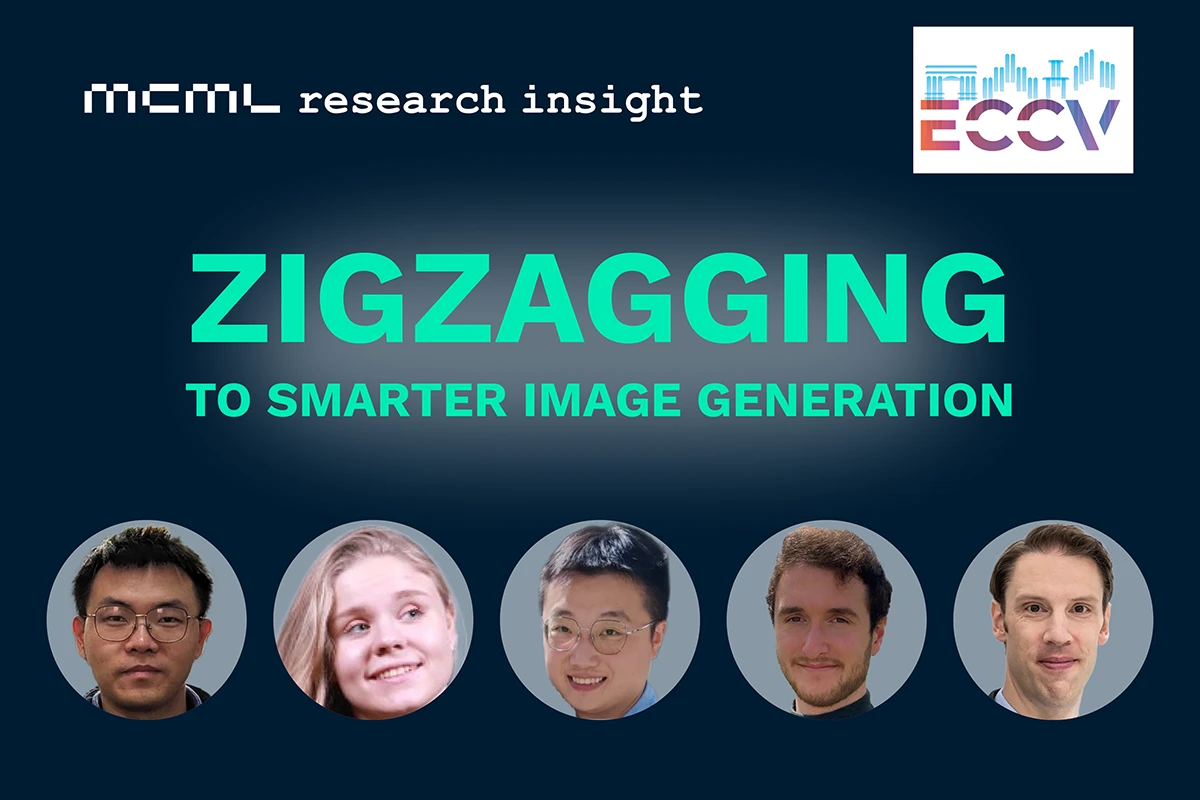
20.11.2025
Zigzag Your Way to Faster, Smarter AI Image Generation
MCML Research Insight - With Vincent Tao Hu, Olga Grebenkova, Pingchuan Ma, Johannes Schusterbauer, and Björn Ommer
State-of-the-art diffusion models like DiT and Stable Diffusion have made AI image generation incredibly powerful. But they still struggle with one big issue: scaling to large images or videos quickly …
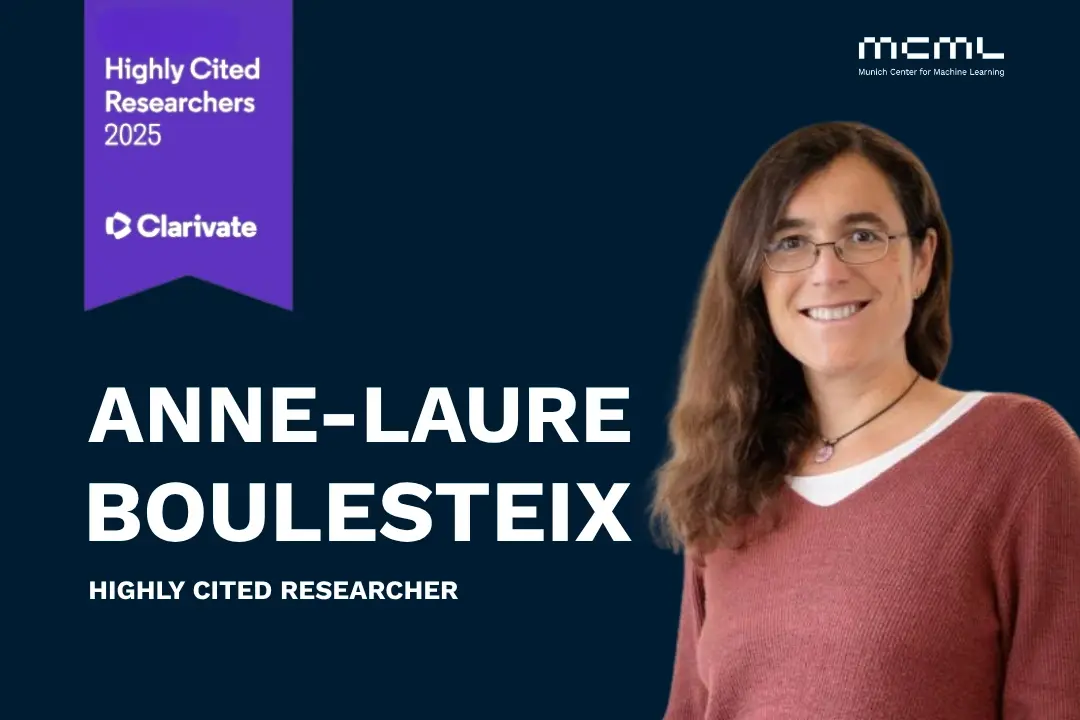
13.11.2025
Anne-Laure Boulesteix Among the World’s Most Cited Researchers
LMU Newsroom
MCML PI Anne‑Laure Boulesteix has been named a Highly Cited Researcher 2025 by Clarivate for her influential work in the Cross-Field category. The recognition highlights publications from 2014–2024 …
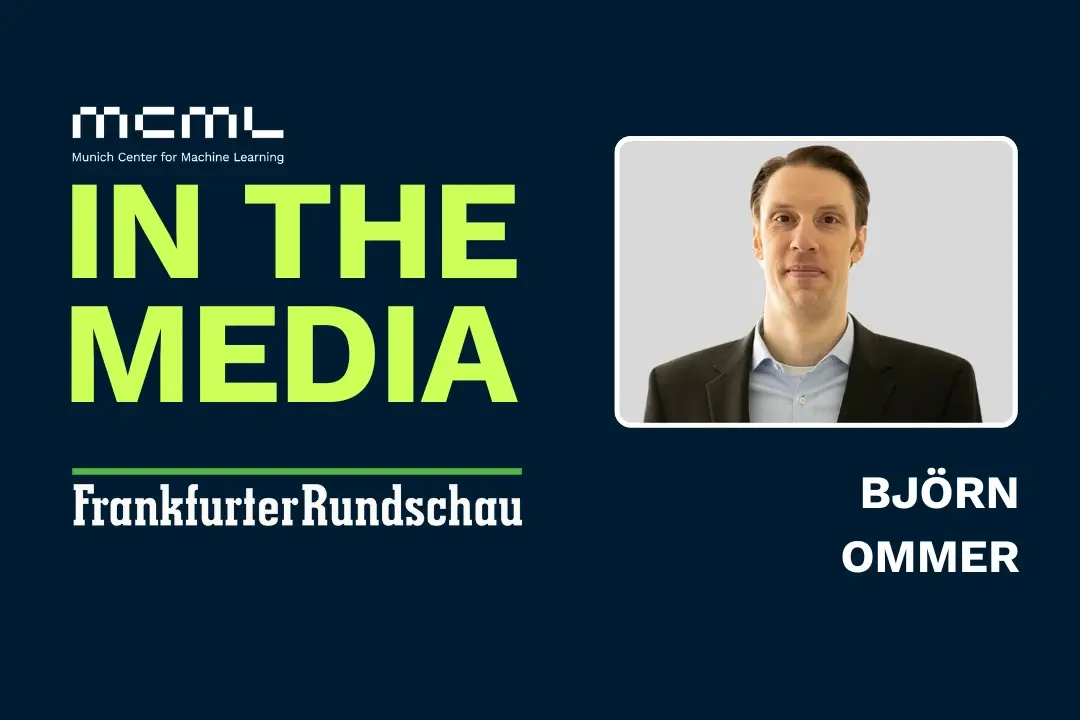
13.11.2025
Björn Ommer Featured in Frankfurter Rundschau
Google’s AI Search Mode Challenges Content Visibility and Online Publishing
MCML PI Björn Ommer was recently featured in Frankfurter Rundschau, commenting on the impact of Google’s new AI-powered search mode. The article discusses how AI-generated summaries in search results …
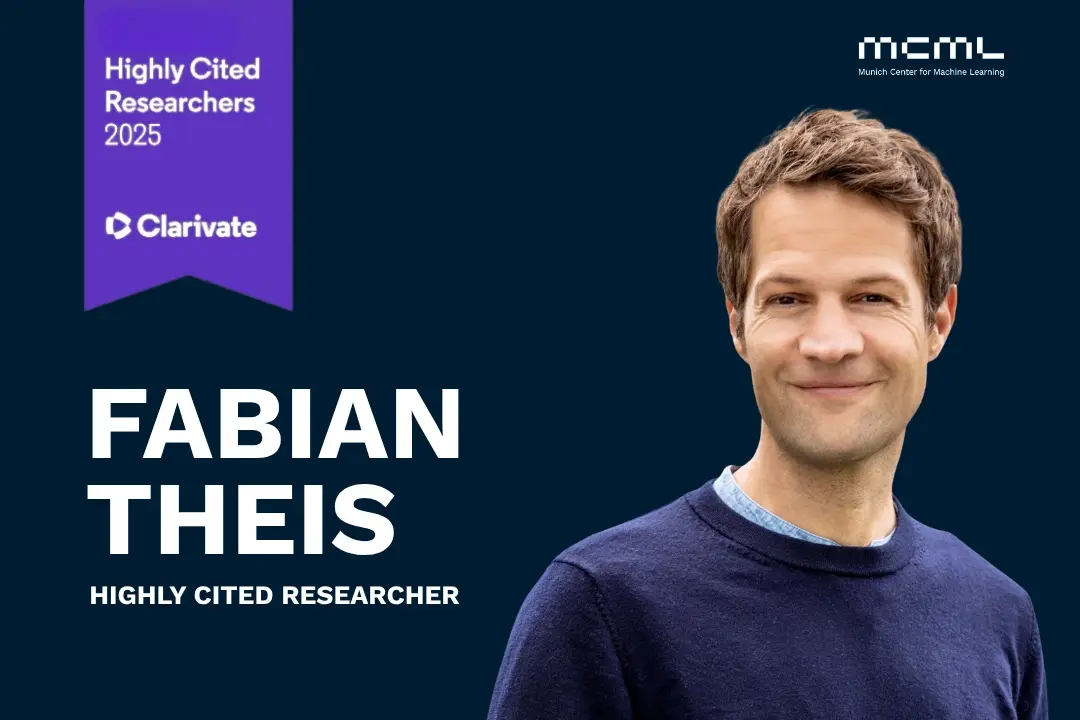
13.11.2025
Fabian Theis Among the World’s Most Cited Researchers
TUM News
MCML PI Fabian Theis is listed among the world’s most frequently cited researchers in Biology and Biochemistry for his work on mathematical modeling of biological systems. In total, 14 TUM scientists …

13.11.2025
Explaining AI Decisions: Shapley Values Enable Smart Exosuits
MCML Research Insight - With Julia Herbinger, Giuseppe Casalicchio, Yusuf Sale, Bernd Bischl and Eyke Hüllermeier
Picture a typical day in a warehouse: one worker lifts, bends, and carries out the same task over and over again. While the routine may seem simple, the physical toll steadily builds—affecting joints …
2020-10-13 - Last modified: 2026-03-05
